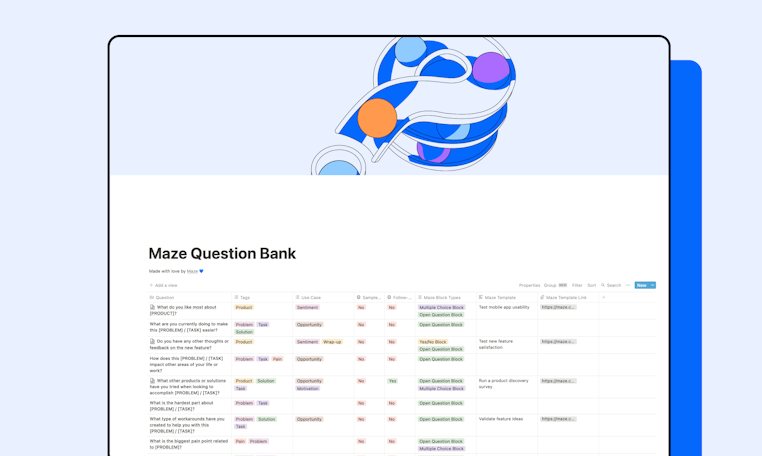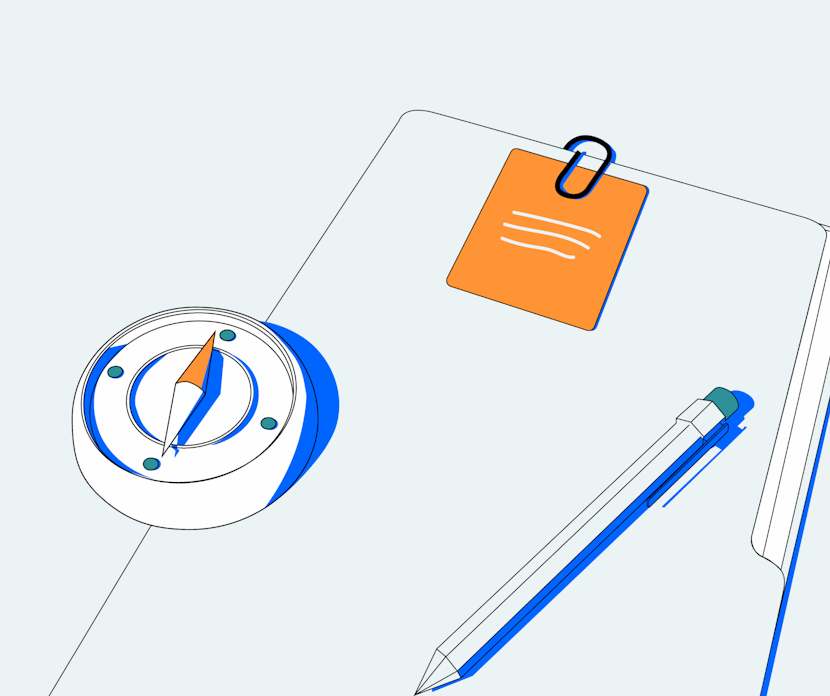
Research Question Examples 🧑🏻🏫
25+ Practical Examples & Ideas To Help You Get Started
By: Derek Jansen (MBA) | October 2023
A well-crafted research question (or set of questions) sets the stage for a robust study and meaningful insights. But, if you’re new to research, it’s not always clear what exactly constitutes a good research question. In this post, we’ll provide you with clear examples of quality research questions across various disciplines, so that you can approach your research project with confidence!
Research Question Examples
- Psychology research questions
- Business research questions
- Education research questions
- Healthcare research questions
- Computer science research questions
Examples: Psychology
Let’s start by looking at some examples of research questions that you might encounter within the discipline of psychology.
How does sleep quality affect academic performance in university students?
This question is specific to a population (university students) and looks at a direct relationship between sleep and academic performance, both of which are quantifiable and measurable variables.
What factors contribute to the onset of anxiety disorders in adolescents?
The question narrows down the age group and focuses on identifying multiple contributing factors. There are various ways in which it could be approached from a methodological standpoint, including both qualitatively and quantitatively.
Do mindfulness techniques improve emotional well-being?
This is a focused research question aiming to evaluate the effectiveness of a specific intervention.
How does early childhood trauma impact adult relationships?
This research question targets a clear cause-and-effect relationship over a long timescale, making it focused but comprehensive.
Is there a correlation between screen time and depression in teenagers?
This research question focuses on an in-demand current issue and a specific demographic, allowing for a focused investigation. The key variables are clearly stated within the question and can be measured and analysed (i.e., high feasibility).

Examples: Business/Management
Next, let’s look at some examples of well-articulated research questions within the business and management realm.
How do leadership styles impact employee retention?
This is an example of a strong research question because it directly looks at the effect of one variable (leadership styles) on another (employee retention), allowing from a strongly aligned methodological approach.
What role does corporate social responsibility play in consumer choice?
Current and precise, this research question can reveal how social concerns are influencing buying behaviour by way of a qualitative exploration.
Does remote work increase or decrease productivity in tech companies?
Focused on a particular industry and a hot topic, this research question could yield timely, actionable insights that would have high practical value in the real world.
How do economic downturns affect small businesses in the homebuilding industry?
Vital for policy-making, this highly specific research question aims to uncover the challenges faced by small businesses within a certain industry.
Which employee benefits have the greatest impact on job satisfaction?
By being straightforward and specific, answering this research question could provide tangible insights to employers.
Examples: Education
Next, let’s look at some potential research questions within the education, training and development domain.
How does class size affect students’ academic performance in primary schools?
This example research question targets two clearly defined variables, which can be measured and analysed relatively easily.
Do online courses result in better retention of material than traditional courses?
Timely, specific and focused, answering this research question can help inform educational policy and personal choices about learning formats.
What impact do US public school lunches have on student health?
Targeting a specific, well-defined context, the research could lead to direct changes in public health policies.
To what degree does parental involvement improve academic outcomes in secondary education in the Midwest?
This research question focuses on a specific context (secondary education in the Midwest) and has clearly defined constructs.
What are the negative effects of standardised tests on student learning within Oklahoma primary schools?
This research question has a clear focus (negative outcomes) and is narrowed into a very specific context.
Need a helping hand?
Examples: Healthcare
Shifting to a different field, let’s look at some examples of research questions within the healthcare space.
What are the most effective treatments for chronic back pain amongst UK senior males?
Specific and solution-oriented, this research question focuses on clear variables and a well-defined context (senior males within the UK).
How do different healthcare policies affect patient satisfaction in public hospitals in South Africa?
This question is has clearly defined variables and is narrowly focused in terms of context.
Which factors contribute to obesity rates in urban areas within California?
This question is focused yet broad, aiming to reveal several contributing factors for targeted interventions.
Does telemedicine provide the same perceived quality of care as in-person visits for diabetes patients?
Ideal for a qualitative study, this research question explores a single construct (perceived quality of care) within a well-defined sample (diabetes patients).
Which lifestyle factors have the greatest affect on the risk of heart disease?
This research question aims to uncover modifiable factors, offering preventive health recommendations.

Examples: Computer Science
Last but certainly not least, let’s look at a few examples of research questions within the computer science world.
What are the perceived risks of cloud-based storage systems?
Highly relevant in our digital age, this research question would align well with a qualitative interview approach to better understand what users feel the key risks of cloud storage are.
Which factors affect the energy efficiency of data centres in Ohio?
With a clear focus, this research question lays a firm foundation for a quantitative study.
How do TikTok algorithms impact user behaviour amongst new graduates?
While this research question is more open-ended, it could form the basis for a qualitative investigation.
What are the perceived risk and benefits of open-source software software within the web design industry?
Practical and straightforward, the results could guide both developers and end-users in their choices.
Remember, these are just examples…
In this post, we’ve tried to provide a wide range of research question examples to help you get a feel for what research questions look like in practice. That said, it’s important to remember that these are just examples and don’t necessarily equate to good research topics . If you’re still trying to find a topic, check out our topic megalist for inspiration.

Psst... there’s more!
This post was based on one of our popular Research Bootcamps . If you're working on a research project, you'll definitely want to check this out ...
You Might Also Like:

Submit a Comment Cancel reply
Your email address will not be published. Required fields are marked *
Save my name, email, and website in this browser for the next time I comment.
- Print Friendly
Get science-backed answers as you write with Paperpal's Research feature
How to Write a Research Question: Types and Examples

The first step in any research project is framing the research question. It can be considered the core of any systematic investigation as the research outcomes are tied to asking the right questions. Thus, this primary interrogation point sets the pace for your research as it helps collect relevant and insightful information that ultimately influences your work.
Typically, the research question guides the stages of inquiry, analysis, and reporting. Depending on the use of quantifiable or quantitative data, research questions are broadly categorized into quantitative or qualitative research questions. Both types of research questions can be used independently or together, considering the overall focus and objectives of your research.
What is a research question?
A research question is a clear, focused, concise, and arguable question on which your research and writing are centered. 1 It states various aspects of the study, including the population and variables to be studied and the problem the study addresses. These questions also set the boundaries of the study, ensuring cohesion.
Designing the research question is a dynamic process where the researcher can change or refine the research question as they review related literature and develop a framework for the study. Depending on the scale of your research, the study can include single or multiple research questions.
A good research question has the following features:
- It is relevant to the chosen field of study.
- The question posed is arguable and open for debate, requiring synthesizing and analysis of ideas.
- It is focused and concisely framed.
- A feasible solution is possible within the given practical constraint and timeframe.
A poorly formulated research question poses several risks. 1
- Researchers can adopt an erroneous design.
- It can create confusion and hinder the thought process, including developing a clear protocol.
- It can jeopardize publication efforts.
- It causes difficulty in determining the relevance of the study findings.
- It causes difficulty in whether the study fulfils the inclusion criteria for systematic review and meta-analysis. This creates challenges in determining whether additional studies or data collection is needed to answer the question.
- Readers may fail to understand the objective of the study. This reduces the likelihood of the study being cited by others.
Now that you know “What is a research question?”, let’s look at the different types of research questions.
Types of research questions
Depending on the type of research to be done, research questions can be classified broadly into quantitative, qualitative, or mixed-methods studies. Knowing the type of research helps determine the best type of research question that reflects the direction and epistemological underpinnings of your research.
The structure and wording of quantitative 2 and qualitative research 3 questions differ significantly. The quantitative study looks at causal relationships, whereas the qualitative study aims at exploring a phenomenon.
- Quantitative research questions:
- Seeks to investigate social, familial, or educational experiences or processes in a particular context and/or location.
- Answers ‘how,’ ‘what,’ or ‘why’ questions.
- Investigates connections, relations, or comparisons between independent and dependent variables.
Quantitative research questions can be further categorized into descriptive, comparative, and relationship, as explained in the Table below.
- Qualitative research questions
Qualitative research questions are adaptable, non-directional, and more flexible. It concerns broad areas of research or more specific areas of study to discover, explain, or explore a phenomenon. These are further classified as follows:
- Mixed-methods studies
Mixed-methods studies use both quantitative and qualitative research questions to answer your research question. Mixed methods provide a complete picture than standalone quantitative or qualitative research, as it integrates the benefits of both methods. Mixed methods research is often used in multidisciplinary settings and complex situational or societal research, especially in the behavioral, health, and social science fields.
What makes a good research question
A good research question should be clear and focused to guide your research. It should synthesize multiple sources to present your unique argument, and should ideally be something that you are interested in. But avoid questions that can be answered in a few factual statements. The following are the main attributes of a good research question.
- Specific: The research question should not be a fishing expedition performed in the hopes that some new information will be found that will benefit the researcher. The central research question should work with your research problem to keep your work focused. If using multiple questions, they should all tie back to the central aim.
- Measurable: The research question must be answerable using quantitative and/or qualitative data or from scholarly sources to develop your research question. If such data is impossible to access, it is better to rethink your question.
- Attainable: Ensure you have enough time and resources to do all research required to answer your question. If it seems you will not be able to gain access to the data you need, consider narrowing down your question to be more specific.
- You have the expertise
- You have the equipment and resources
- Realistic: Developing your research question should be based on initial reading about your topic. It should focus on addressing a problem or gap in the existing knowledge in your field or discipline.
- Based on some sort of rational physics
- Can be done in a reasonable time frame
- Timely: The research question should contribute to an existing and current debate in your field or in society at large. It should produce knowledge that future researchers or practitioners can later build on.
- Novel
- Based on current technologies.
- Important to answer current problems or concerns.
- Lead to new directions.
- Important: Your question should have some aspect of originality. Incremental research is as important as exploring disruptive technologies. For example, you can focus on a specific location or explore a new angle.
- Meaningful whether the answer is “Yes” or “No.” Closed-ended, yes/no questions are too simple to work as good research questions. Such questions do not provide enough scope for robust investigation and discussion. A good research question requires original data, synthesis of multiple sources, and original interpretation and argumentation before providing an answer.
Steps for developing a good research question
The importance of research questions cannot be understated. When drafting a research question, use the following frameworks to guide the components of your question to ease the process. 4
- Determine the requirements: Before constructing a good research question, set your research requirements. What is the purpose? Is it descriptive, comparative, or explorative research? Determining the research aim will help you choose the most appropriate topic and word your question appropriately.
- Select a broad research topic: Identify a broader subject area of interest that requires investigation. Techniques such as brainstorming or concept mapping can help identify relevant connections and themes within a broad research topic. For example, how to learn and help students learn.
- Perform preliminary investigation: Preliminary research is needed to obtain up-to-date and relevant knowledge on your topic. It also helps identify issues currently being discussed from which information gaps can be identified.
- Narrow your focus: Narrow the scope and focus of your research to a specific niche. This involves focusing on gaps in existing knowledge or recent literature or extending or complementing the findings of existing literature. Another approach involves constructing strong research questions that challenge your views or knowledge of the area of study (Example: Is learning consistent with the existing learning theory and research).
- Identify the research problem: Once the research question has been framed, one should evaluate it. This is to realize the importance of the research questions and if there is a need for more revising (Example: How do your beliefs on learning theory and research impact your instructional practices).
How to write a research question
Those struggling to understand how to write a research question, these simple steps can help you simplify the process of writing a research question.
Sample Research Questions
The following are some bad and good research question examples
- Example 1
- Example 2
References:
- Thabane, L., Thomas, T., Ye, C., & Paul, J. (2009). Posing the research question: not so simple. Canadian Journal of Anesthesia/Journal canadien d’anesthésie , 56 (1), 71-79.
- Rutberg, S., & Bouikidis, C. D. (2018). Focusing on the fundamentals: A simplistic differentiation between qualitative and quantitative research. Nephrology Nursing Journal , 45 (2), 209-213.
- Kyngäs, H. (2020). Qualitative research and content analysis. The application of content analysis in nursing science research , 3-11.
- Mattick, K., Johnston, J., & de la Croix, A. (2018). How to… write a good research question. The clinical teacher , 15 (2), 104-108.
- Fandino, W. (2019). Formulating a good research question: Pearls and pitfalls. Indian Journal of Anaesthesia , 63 (8), 611.
- Richardson, W. S., Wilson, M. C., Nishikawa, J., & Hayward, R. S. (1995). The well-built clinical question: a key to evidence-based decisions. ACP journal club , 123 (3), A12-A13
Paperpal is a comprehensive AI writing toolkit that helps students and researchers achieve 2x the writing in half the time. It leverages 21+ years of STM experience and insights from millions of research articles to provide in-depth academic writing, language editing, and submission readiness support to help you write better, faster.
Get accurate academic translations, rewriting support, grammar checks, vocabulary suggestions, and generative AI assistance that delivers human precision at machine speed. Try for free or upgrade to Paperpal Prime starting at US$19 a month to access premium features, including consistency, plagiarism, and 30+ submission readiness checks to help you succeed.
Experience the future of academic writing – Sign up to Paperpal and start writing for free!
Related Reads:
- Scientific Writing Style Guides Explained
- Ethical Research Practices For Research with Human Subjects
- 8 Most Effective Ways to Increase Motivation for Thesis Writing
- 6 Tips for Post-Doc Researchers to Take Their Career to the Next Level
Transitive and Intransitive Verbs in the World of Research
Language and grammar rules for academic writing, you may also like, academic editing: how to self-edit academic text with..., measuring academic success: definition & strategies for excellence, phd qualifying exam: tips for success , quillbot review: features, pricing, and free alternatives, what is an academic paper types and elements , 9 steps to publish a research paper, what are the different types of research papers, how to make translating academic papers less challenging, 6 tips for post-doc researchers to take their..., presenting research data effectively through tables and figures.
- Privacy Policy

Home » Research Questions – Types, Examples and Writing Guide
Research Questions – Types, Examples and Writing Guide
Table of Contents

Research Questions
Definition:
Research questions are the specific questions that guide a research study or inquiry. These questions help to define the scope of the research and provide a clear focus for the study. Research questions are usually developed at the beginning of a research project and are designed to address a particular research problem or objective.
Types of Research Questions
Types of Research Questions are as follows:
Descriptive Research Questions
These aim to describe a particular phenomenon, group, or situation. For example:
- What are the characteristics of the target population?
- What is the prevalence of a particular disease in a specific region?
Exploratory Research Questions
These aim to explore a new area of research or generate new ideas or hypotheses. For example:
- What are the potential causes of a particular phenomenon?
- What are the possible outcomes of a specific intervention?
Explanatory Research Questions
These aim to understand the relationship between two or more variables or to explain why a particular phenomenon occurs. For example:
- What is the effect of a specific drug on the symptoms of a particular disease?
- What are the factors that contribute to employee turnover in a particular industry?
Predictive Research Questions
These aim to predict a future outcome or trend based on existing data or trends. For example :
- What will be the future demand for a particular product or service?
- What will be the future prevalence of a particular disease?
Evaluative Research Questions
These aim to evaluate the effectiveness of a particular intervention or program. For example:
- What is the impact of a specific educational program on student learning outcomes?
- What is the effectiveness of a particular policy or program in achieving its intended goals?
How to Choose Research Questions
Choosing research questions is an essential part of the research process and involves careful consideration of the research problem, objectives, and design. Here are some steps to consider when choosing research questions:
- Identify the research problem: Start by identifying the problem or issue that you want to study. This could be a gap in the literature, a social or economic issue, or a practical problem that needs to be addressed.
- Conduct a literature review: Conducting a literature review can help you identify existing research in your area of interest and can help you formulate research questions that address gaps or limitations in the existing literature.
- Define the research objectives : Clearly define the objectives of your research. What do you want to achieve with your study? What specific questions do you want to answer?
- Consider the research design : Consider the research design that you plan to use. This will help you determine the appropriate types of research questions to ask. For example, if you plan to use a qualitative approach, you may want to focus on exploratory or descriptive research questions.
- Ensure that the research questions are clear and answerable: Your research questions should be clear and specific, and should be answerable with the data that you plan to collect. Avoid asking questions that are too broad or vague.
- Get feedback : Get feedback from your supervisor, colleagues, or peers to ensure that your research questions are relevant, feasible, and meaningful.
How to Write Research Questions
Guide for Writing Research Questions:
- Start with a clear statement of the research problem: Begin by stating the problem or issue that your research aims to address. This will help you to formulate focused research questions.
- Use clear language : Write your research questions in clear and concise language that is easy to understand. Avoid using jargon or technical terms that may be unfamiliar to your readers.
- Be specific: Your research questions should be specific and focused. Avoid broad questions that are difficult to answer. For example, instead of asking “What is the impact of climate change on the environment?” ask “What are the effects of rising sea levels on coastal ecosystems?”
- Use appropriate question types: Choose the appropriate question types based on the research design and objectives. For example, if you are conducting a qualitative study, you may want to use open-ended questions that allow participants to provide detailed responses.
- Consider the feasibility of your questions : Ensure that your research questions are feasible and can be answered with the resources available. Consider the data sources and methods of data collection when writing your questions.
- Seek feedback: Get feedback from your supervisor, colleagues, or peers to ensure that your research questions are relevant, appropriate, and meaningful.
Examples of Research Questions
Some Examples of Research Questions with Research Titles:
Research Title: The Impact of Social Media on Mental Health
- Research Question : What is the relationship between social media use and mental health, and how does this impact individuals’ well-being?
Research Title: Factors Influencing Academic Success in High School
- Research Question: What are the primary factors that influence academic success in high school, and how do they contribute to student achievement?
Research Title: The Effects of Exercise on Physical and Mental Health
- Research Question: What is the relationship between exercise and physical and mental health, and how can exercise be used as a tool to improve overall well-being?
Research Title: Understanding the Factors that Influence Consumer Purchasing Decisions
- Research Question : What are the key factors that influence consumer purchasing decisions, and how do these factors vary across different demographics and products?
Research Title: The Impact of Technology on Communication
- Research Question : How has technology impacted communication patterns, and what are the effects of these changes on interpersonal relationships and society as a whole?
Research Title: Investigating the Relationship between Parenting Styles and Child Development
- Research Question: What is the relationship between different parenting styles and child development outcomes, and how do these outcomes vary across different ages and developmental stages?
Research Title: The Effectiveness of Cognitive-Behavioral Therapy in Treating Anxiety Disorders
- Research Question: How effective is cognitive-behavioral therapy in treating anxiety disorders, and what factors contribute to its success or failure in different patients?
Research Title: The Impact of Climate Change on Biodiversity
- Research Question : How is climate change affecting global biodiversity, and what can be done to mitigate the negative effects on natural ecosystems?
Research Title: Exploring the Relationship between Cultural Diversity and Workplace Productivity
- Research Question : How does cultural diversity impact workplace productivity, and what strategies can be employed to maximize the benefits of a diverse workforce?
Research Title: The Role of Artificial Intelligence in Healthcare
- Research Question: How can artificial intelligence be leveraged to improve healthcare outcomes, and what are the potential risks and ethical concerns associated with its use?
Applications of Research Questions
Here are some of the key applications of research questions:
- Defining the scope of the study : Research questions help researchers to narrow down the scope of their study and identify the specific issues they want to investigate.
- Developing hypotheses: Research questions often lead to the development of hypotheses, which are testable predictions about the relationship between variables. Hypotheses provide a clear and focused direction for the study.
- Designing the study : Research questions guide the design of the study, including the selection of participants, the collection of data, and the analysis of results.
- Collecting data : Research questions inform the selection of appropriate methods for collecting data, such as surveys, interviews, or experiments.
- Analyzing data : Research questions guide the analysis of data, including the selection of appropriate statistical tests and the interpretation of results.
- Communicating results : Research questions help researchers to communicate the results of their study in a clear and concise manner. The research questions provide a framework for discussing the findings and drawing conclusions.
Characteristics of Research Questions
Characteristics of Research Questions are as follows:
- Clear and Specific : A good research question should be clear and specific. It should clearly state what the research is trying to investigate and what kind of data is required.
- Relevant : The research question should be relevant to the study and should address a current issue or problem in the field of research.
- Testable : The research question should be testable through empirical evidence. It should be possible to collect data to answer the research question.
- Concise : The research question should be concise and focused. It should not be too broad or too narrow.
- Feasible : The research question should be feasible to answer within the constraints of the research design, time frame, and available resources.
- Original : The research question should be original and should contribute to the existing knowledge in the field of research.
- Significant : The research question should have significance and importance to the field of research. It should have the potential to provide new insights and knowledge to the field.
- Ethical : The research question should be ethical and should not cause harm to any individuals or groups involved in the study.
Purpose of Research Questions
Research questions are the foundation of any research study as they guide the research process and provide a clear direction to the researcher. The purpose of research questions is to identify the scope and boundaries of the study, and to establish the goals and objectives of the research.
The main purpose of research questions is to help the researcher to focus on the specific area or problem that needs to be investigated. They enable the researcher to develop a research design, select the appropriate methods and tools for data collection and analysis, and to organize the results in a meaningful way.
Research questions also help to establish the relevance and significance of the study. They define the research problem, and determine the research methodology that will be used to address the problem. Research questions also help to determine the type of data that will be collected, and how it will be analyzed and interpreted.
Finally, research questions provide a framework for evaluating the results of the research. They help to establish the validity and reliability of the data, and provide a basis for drawing conclusions and making recommendations based on the findings of the study.
Advantages of Research Questions
There are several advantages of research questions in the research process, including:
- Focus : Research questions help to focus the research by providing a clear direction for the study. They define the specific area of investigation and provide a framework for the research design.
- Clarity : Research questions help to clarify the purpose and objectives of the study, which can make it easier for the researcher to communicate the research aims to others.
- Relevance : Research questions help to ensure that the study is relevant and meaningful. By asking relevant and important questions, the researcher can ensure that the study will contribute to the existing body of knowledge and address important issues.
- Consistency : Research questions help to ensure consistency in the research process by providing a framework for the development of the research design, data collection, and analysis.
- Measurability : Research questions help to ensure that the study is measurable by defining the specific variables and outcomes that will be measured.
- Replication : Research questions help to ensure that the study can be replicated by providing a clear and detailed description of the research aims, methods, and outcomes. This makes it easier for other researchers to replicate the study and verify the results.
Limitations of Research Questions
Limitations of Research Questions are as follows:
- Subjectivity : Research questions are often subjective and can be influenced by personal biases and perspectives of the researcher. This can lead to a limited understanding of the research problem and may affect the validity and reliability of the study.
- Inadequate scope : Research questions that are too narrow in scope may limit the breadth of the study, while questions that are too broad may make it difficult to focus on specific research objectives.
- Unanswerable questions : Some research questions may not be answerable due to the lack of available data or limitations in research methods. In such cases, the research question may need to be rephrased or modified to make it more answerable.
- Lack of clarity : Research questions that are poorly worded or ambiguous can lead to confusion and misinterpretation. This can result in incomplete or inaccurate data, which may compromise the validity of the study.
- Difficulty in measuring variables : Some research questions may involve variables that are difficult to measure or quantify, making it challenging to draw meaningful conclusions from the data.
- Lack of generalizability: Research questions that are too specific or limited in scope may not be generalizable to other contexts or populations. This can limit the applicability of the study’s findings and restrict its broader implications.
About the author
Muhammad Hassan
Researcher, Academic Writer, Web developer
You may also like

Data Collection – Methods Types and Examples

Delimitations in Research – Types, Examples and...

Research Process – Steps, Examples and Tips

Research Design – Types, Methods and Examples

Institutional Review Board – Application Sample...

Evaluating Research – Process, Examples and...
80 fascinating psychology research questions for your next project
Last updated
15 February 2024
Reviewed by
Brittany Ferri, PhD, OTR/L
Psychology research is essential for furthering our understanding of human behavior and improving the diagnosis and treatment of psychological conditions.
When psychologists know more about how different social and cultural factors influence how humans act, think, and feel, they can recommend improvements to practices in areas such as education, sport, healthcare, and law enforcement.
Below, you will find 80 research question examples across 16 branches of psychology. First, though, let’s look at some tips to help you select a suitable research topic.
- How to choose a good psychology research topic
Psychology has many branches that break down further into topics. Choosing a topic for your psychology research paper can be daunting because there are so many to choose from. It’s an important choice, as the topic you select will open up a range of questions to explore.
The tips below can help you find a psychology research topic that suits your skills and interests.
Tip #1: Select a topic that interests you
Passion and interest should fuel every research project. A topic that fascinates you will most likely interest others as well. Think about the questions you and others might have and decide on the issues that matter most. Draw on your own interests, but also keep your research topical and relevant to others.
Don’t limit yourself to a topic that you already know about. Instead, choose one that will make you want to know more and dig deeper. This will keep you motivated and excited about your research.
Tip #2: Choose a topic with a manageable scope
If your topic is too broad, you can get overwhelmed by the amount of information available and have trouble maintaining focus. On the other hand, you may find it difficult to find enough information if you choose a topic that is too narrow.
To determine if the topic is too broad or too narrow, start researching as early as possible. If you find there’s an overwhelming amount of research material, you’ll probably need to narrow the topic down. For example, instead of researching the general population, it might be easier to focus on a specific age group. Ask yourself what area of the general topic interests you most and focus on that.
If your scope is too narrow, try to generalize or focus on a larger related topic. Expand your search criteria or select additional databases for information. Consider if the topic is too new to have much information published on it as well.
Tip #3: Select a topic that will produce useful and relevant insights
Doing some preliminary research will reveal any existing research on the topic. If there is existing research, will you be able to produce new insights? You might need to focus on a different area or see if the existing research has limitations that you can overcome.
Bear in mind that finding new information from which to draw fresh insights may be impossible if your topic has been over-researched.
You’ll also need to consider whether your topic is relevant to current trends and needs. For example, researching psychology topics related to social media use may be highly relevant today.
- 80 psychology research topics and questions
Psychology is a broad subject with many branches and potential areas of study. Here are some of them:
Developmental
Personality
Experimental
Organizational
Educational
Neuropsychology
Controversial topics
Below we offer some suggestions on research topics and questions that can get you started. Keep in mind that these are not all-inclusive but should be personalized to fit the theme of your paper.
Social psychology research topics and questions
Social psychology has roots as far back as the 18th century. In simple terms, it’s the study of how behavior is influenced by the presence and behavior of others. It is the science of finding out who we are, who we think we are, and how our perceptions affect ourselves and others. It looks at personalities, relationships, and group behavior.
Here are some potential research questions and paper titles for this topic:
How does social media use impact perceptions of body image in male adolescents?
2. Is childhood bullying a risk factor for social anxiety in adults?
Is homophobia in individuals caused by genetic or environmental factors?
What is the most important psychological predictor of a person’s willingness to donate to charity?
Does a person’s height impact how other people perceive them? If so, how?
Cognitive psychology research questions
Cognitive psychology is the branch that focuses on the interactions of thinking, emotion, creativity, and problem-solving. It also explores the reasons humans think the way they do.
This topic involves exploring how people think by measuring intelligence, thoughts, and cognition.
Here are some research question ideas:
6. Is there a link between chronic stress and memory function?
7. Can certain kinds of music trigger memories in people with memory loss?
8. Do remote meetings impact the efficacy of team decision-making?
9. Do word games and puzzles slow cognitive decline in adults over the age of 80?
10. Does watching television impact a child’s reading ability?
Developmental psychology research questions
Developmental psychology is the study of how humans grow and change over their lifespan. It usually focuses on the social, emotional, and physical development of babies and children, though it can apply to people of all ages. Developmental psychology is important for understanding how we learn, mature, and adapt to changes.
Here are some questions that might inspire your research:
11. Does grief accelerate the aging process?
12. How do parent–child attachment patterns influence the development of emotion regulation in teenagers?
13. Does bilingualism affect cognitive decline in adults over the age of 70?
14. How does the transition to adulthood impact decision-making abilities
15. How does early exposure to music impact mental health and well-being in school-aged children?
Personality psychology research questions
Personality psychology studies personalities, how they develop, their structures, and the processes that define them. It looks at intelligence, disposition, moral beliefs, thoughts, and reactions.
The goal of this branch of psychology is to scientifically interpret the way personality patterns manifest into an individual’s behaviors. Here are some example research questions:
16. Nature vs. nurture: Which impacts personality development the most?
17. The role of genetics on personality: Does an adopted child take on their biological parents’ personality traits?
18. How do personality traits influence leadership styles and effectiveness in organizational settings?
19. Is there a relationship between an individual’s personality and mental health?
20. Can a chronic illness affect your personality?
Abnormal psychology research questions
As the name suggests, abnormal psychology is a branch that focuses on abnormal behavior and psychopathology (the scientific study of mental illness or disorders).
Abnormal behavior can be challenging to define. Who decides what is “normal”? As such, psychologists in this area focus on the level of distress that certain behaviors may cause, although this typically involves studying mental health conditions such as depression, obsessive-compulsive disorder (OCD), and phobias.
Here are some questions to consider:
21. How does technology impact the development of social anxiety disorder?
22. What are the factors behind the rising incidence of eating disorders in adolescents?
23. Are mindfulness-based interventions effective in the treatment of PTSD?
24. Is there a connection between depression and gambling addiction?
25. Can physical trauma cause psychopathy?
Clinical psychology research questions
Clinical psychology deals with assessing and treating mental illness or abnormal or psychiatric behaviors. It differs from abnormal psychology in that it focuses more on treatments and clinical aspects, while abnormal psychology is more behavioral focused.
This is a specialty area that provides care and treatment for complex mental health conditions. This can include treatment, not only for individuals but for couples, families, and other groups. Clinical psychology also supports communities, conducts research, and offers training to promote mental health. This category is very broad, so there are lots of topics to explore.
Below are some example research questions to consider:
26. Do criminals require more specific therapies or interventions?
27. How effective are selective serotonin reuptake inhibitors in treating mental health disorders?
28. Are there any disadvantages to humanistic therapy?
29. Can group therapy be more beneficial than one-on-one therapy sessions?
30. What are the factors to consider when selecting the right treatment plan for patients with anxiety?
Experimental psychology research questions
Experimental psychology deals with studies that can prove or disprove a hypothesis. Psychologists in this field use scientific methods to collect data on basic psychological processes such as memory, cognition, and learning. They use this data to test the whys and hows of behavior and how outside factors influence its creation.
Areas of interest in this branch relate to perception, memory, emotion, and sensation. The below are example questions that could inspire your own research:
31. Do male or female parents/carers have a more calming influence on children?
32. Will your preference for a genre of music increase the more you listen to it?
33. What are the psychological effects of posting on social media vs. not posting?
34. How is productivity affected by social connection?
35. Is cheating contagious?
Organizational psychology research questions
Organizational psychology studies human behavior in the workplace. It is most frequently used to evaluate an employee, group, or a company’s organizational dynamics. Researchers aim to isolate issues and identify solutions.
This area of study can be beneficial to both employees and employers since the goal is to improve the overall work environment and experience. Researchers apply psychological principles and findings to recommend improvements in performance, communication, job satisfaction, and safety.
Some potential research questions include the following:
36. How do different leadership styles affect employee morale?
37. Do longer lunch breaks boost employee productivity?
38. Is gender an antecedent to workplace stress?
39. What is the most effective way to promote work–life balance among employees?
40. How do different organizational structures impact the effectiveness of communication, decision-making, and productivity?
Forensic psychology research questions
Some questions to consider exploring in this branch of psychology are:
41. How does incarceration affect mental health?
42. Is childhood trauma a driver for criminal behavior during adulthood?
43. Are people with mental health conditions more likely to be victims of crimes?
44. What are the drivers of false memories, and how do they impact the justice system?
45. Is the media responsible for copycat crimes?
Educational psychology research questions
Educational psychology studies children in an educational setting. It covers topics like teaching methods, aptitude assessment, self-motivation, technology, and parental involvement.
Research in this field of psychology is vital for understanding and optimizing learning processes. It informs educators about cognitive development, learning styles, and effective teaching strategies.
Here are some example research questions:
46. Are different teaching styles more beneficial for children at different times of the day?
47. Can listening to classical music regularly increase a student’s test scores?
48. Is there a connection between sugar consumption and knowledge retention in students?
49. Does sleep duration and quality impact academic performance?
50. Does daily meditation at school influence students’ academic performance and mental health?
Sports psychology research question examples
Sport psychology aims to optimize physical performance and well-being in athletes by using cognitive and behavioral practices and interventions. Some methods include counseling, training, and clinical interventions.
Research in this area is important because it can improve team and individual performance, resilience, motivation, confidence, and overall well-being
Here are some research question ideas for you to consider:
51. How can a famous coach affect a team’s performance?
52. How can athletes control negative emotions in violent or high-contact sports?
53. How does using social media impact an athlete’s performance and well-being?
54. Can psychological interventions help with injury rehabilitation?
55. How can mindfulness practices boost sports performance?
Cultural psychology research question examples
The premise of this branch of psychology is that mind and culture are inseparable. In other words, people are shaped by their cultures, and their cultures are shaped by them. This can be a complex interaction.
Cultural psychology is vital as it explores how cultural context shapes individuals’ thoughts, behaviors, and perceptions. It provides insights into diverse perspectives, promoting cross-cultural understanding and reducing biases.
Here are some ideas that you might consider researching:
56. Are there cultural differences in how people perceive and deal with pain?
57. Are different cultures at increased risk of developing mental health conditions?
58. Are there cultural differences in coping strategies for stress?
59. Do our different cultures shape our personalities?
60. How does multi-generational culture influence family values and structure?
Health psychology research question examples
Health psychology is a crucial field of study. Understanding how psychological factors influence health behaviors, adherence to medical treatments, and overall wellness enables health experts to develop effective interventions and preventive measures, ultimately improving health outcomes.
Health psychology also aids in managing stress, promoting healthy behaviors, and optimizing mental health, fostering a holistic approach to well-being.
Here are five ideas to inspire research in this field:
61. How can health psychology interventions improve lifestyle behaviors to prevent cardiovascular diseases?
62. What role do social norms play in vaping among adolescents?
63. What role do personality traits play in the development and management of chronic pain conditions?
64. How do cultural beliefs and attitudes influence health-seeking behaviors in diverse populations?
65. What are the psychological factors influencing the adherence to preventive health behaviors, such as vaccination and regular screenings?
Neuropsychology research paper question examples
Neuropsychology research explores how a person’s cognition and behavior are related to their brain and nervous system. Researchers aim to advance the diagnosis and treatment of behavioral and cognitive effects of neurological disorders.
Researchers may work with children facing learning or developmental challenges, or with adults with declining cognitive abilities. They may also focus on injuries or illnesses of the brain, such as traumatic brain injuries, to determine the effect on cognitive and behavioral functions.
Neuropsychology informs diagnosis and treatment strategies for conditions such as dementia, traumatic brain injuries, and psychiatric disorders. Understanding the neural basis of behavior enhances our ability to optimize cognitive functioning, rehabilitate people with brain injuries, and improve patient care.
Here are some example research questions to consider:
66. How do neurotransmitter imbalances in specific brain regions contribute to mood disorders such as depression?
67. How can a traumatic brain injury affect memory?
68. What neural processes underlie attention deficits in people with ADHD?
69. Do medications affect the brain differently after a traumatic brain injury?
70. What are the behavioral effects of prolonged brain swelling?
Psychology of religion research question examples
The psychology of religion is a field that studies the interplay between belief systems, spirituality, and mental well-being. It explores the application of the psychological methods and interpretive frameworks of religious traditions and how they relate to both religious and non-religious people.
Psychology of religion research contributes to a holistic understanding of human experiences. It fosters cultural competence and guides therapeutic approaches that respect diverse spiritual beliefs.
Here are some example research questions in this field:
71. What impact does a religious upbringing have on a child’s self-esteem?
72. How do religious beliefs shape decision-making and perceptions of morality?
73. What is the impact of religious indoctrination?
74. Is there correlation between religious and mindfulness practices?
75. How does religious affiliation impact attitudes towards mental health treatment and help-seeking behaviors?
Controversial topics in psychology research question examples
Some psychology topics don’t fit into any of the subcategories above, but they may still be worthwhile topics to consider. These topics are the ones that spark interest, conversation, debate, and disagreement. They are often inspired by current issues and assess the validity of older research.
Consider some of these research question examples:
76. How does the rise in on-screen violence impact behavior in adolescents.
77. Should access to social media platforms be restricted in children under the age of 12 to improve mental health?
78. Are prescription mental health medications over-prescribed in older adults? If so, what are the effects of this?
79. Cognitive biases in AI: what are the implications for decision-making?
80. What are the psychological and ethical implications of using virtual reality in exposure therapy for treating trauma-related conditions?
- Inspiration for your next psychology research project
You can choose from a diverse range of research questions that intersect and overlap across various specialties.
From cognitive psychology to clinical studies, each inquiry contributes to a deeper understanding of the human mind and behavior. Importantly, the relevance of these questions transcends individual disciplines, as many findings offer insights applicable across multiple areas of study.
As health trends evolve and societal needs shift, new topics emerge, fueling continual exploration and discovery. Diving into this ever-changing and expanding area of study enables you to navigate the complexities of the human experience and pave the way for innovative solutions to the challenges of tomorrow.
Should you be using a customer insights hub?
Do you want to discover previous research faster?
Do you share your research findings with others?
Do you analyze research data?
Start for free today, add your research, and get to key insights faster
Editor’s picks
Last updated: 11 January 2024
Last updated: 15 January 2024
Last updated: 17 January 2024
Last updated: 12 May 2023
Last updated: 30 April 2024
Last updated: 18 May 2023
Last updated: 25 November 2023
Last updated: 13 May 2024
Latest articles
Related topics, .css-je19u9{-webkit-align-items:flex-end;-webkit-box-align:flex-end;-ms-flex-align:flex-end;align-items:flex-end;display:-webkit-box;display:-webkit-flex;display:-ms-flexbox;display:flex;-webkit-flex-direction:row;-ms-flex-direction:row;flex-direction:row;-webkit-box-flex-wrap:wrap;-webkit-flex-wrap:wrap;-ms-flex-wrap:wrap;flex-wrap:wrap;-webkit-box-pack:center;-ms-flex-pack:center;-webkit-justify-content:center;justify-content:center;row-gap:0;text-align:center;max-width:671px;}@media (max-width: 1079px){.css-je19u9{max-width:400px;}.css-je19u9>span{white-space:pre;}}@media (max-width: 799px){.css-je19u9{max-width:400px;}.css-je19u9>span{white-space:pre;}} decide what to .css-1kiodld{max-height:56px;display:-webkit-box;display:-webkit-flex;display:-ms-flexbox;display:flex;-webkit-align-items:center;-webkit-box-align:center;-ms-flex-align:center;align-items:center;}@media (max-width: 1079px){.css-1kiodld{display:none;}} build next, decide what to build next.

Users report unexpectedly high data usage, especially during streaming sessions.

Users find it hard to navigate from the home page to relevant playlists in the app.

It would be great to have a sleep timer feature, especially for bedtime listening.

I need better filters to find the songs or artists I’m looking for.
Log in or sign up
Get started for free

Think Like a Researcher: Instruction Resources: #6 Developing Successful Research Questions
- Guide Organization
- Overall Summary
- #1 Think Like a Researcher!
- #2 How to Read a Scholarly Article
- #3 Reading for Keywords (CREDO)
- #4 Using Google for Academic Research
- #4 Using Google for Academic Research (Alternate)
- #5 Integrating Sources
- Research Question Discussion
- #7 Avoiding Researcher Bias
- #8 Understanding the Information Cycle
- #9 Exploring Databases
- #10 Library Session
- #11 Post Library Session Activities
- Summary - Readings
- Summary - Research Journal Prompts
- Summary - Key Assignments
- Jigsaw Readings
- Permission Form
Course Learning Outcome: Develop ability to synthesize and express complex ideas; demonstrate information literacy and be able to work with evidence
Goal: Develop students’ ability to recognize and create successful research questions
Specifically, students will be able to
- identify the components of a successful research question.
- create a viable research question.
What Makes a Good Research Topic Handout
These handouts are intended to be used as a discussion generator that will help students develop a solid research topic or question. Many students start with topics that are poorly articulated, too broad, unarguable, or are socially insignificant. Each of these problems may result in a topic that is virtually un-researchable. Starting with a researchable topic is critical to writing an effective paper.
Research shows that students are much more invested in writing when they are able to choose their own topics. However, there is also research to support the notion that students are completely overwhelmed and frustrated when they are given complete freedom to write about whatever they choose. Providing some structure or topic themes that allow students to make bounded choices may be a way mitigate these competing realities.
These handouts can be modified or edited for your purposes. One can be used as a handout for students while the other can serve as a sample answer key. The document is best used as part of a process. For instance, perhaps starting with discussing the issues and potential research questions, moving on to problems and social significance but returning to proposals/solutions at a later date.
- Research Questions - Handout Key (2 pgs) This document is a condensed version of "What Makes a Good Research Topic". It serves as a key.
- Research Questions - Handout for Students (2 pgs) This document could be used with a class to discuss sample research questions (are they suitable?) and to have them start thinking about problems, social significance, and solutions for additional sample research questions.
- Research Question Discussion This tab includes materials for introduction students to research question criteria for a problem/solution essay.
Additional Resources
These documents have similarities to those above. They represent original documents and conversations about research questions from previous TRAIL trainings.
- What Makes a Good Research Topic? - Original Handout (4 pgs)
- What Makes a Good Research Topic? Revised Jan. 2016 (4 pgs)
- What Makes a Good Research Topic? Revised Jan 2016 with comments
Topic Selection (NCSU Libraries)
Howard, Rebecca Moore, Tricia Serviss, and Tanya K. Rodrigues. " Writing from sources, writing from sentences ." Writing & Pedagogy 2.2 (2010): 177-192.
Research Journal
Assign after students have participated in the Developing Successful Research Topics/Questions Lesson OR have drafted a Research Proposal.
Think about your potential research question.
- What is the problem that underlies your question?
- Is the problem of social significance? Explain.
- Is your proposed solution to the problem feasible? Explain.
- Do you think there is evidence to support your solution?
Keys for Writers - Additional Resource
Keys for Writers (Raimes and Miller-Cochran) includes a section to guide students in the formation of an arguable claim (thesis). The authors advise students to avoid the following since they are not debatable.
- "a neutral statement, which gives no hint of the writer's position"
- "an announcement of the paper's broad subject"
- "a fact, which is not arguable"
- "a truism (statement that is obviously true)"
- "a personal or religious conviction that cannot be logically debated"
- "an opinion based only on your feelings"
- "a sweeping generalization" (Section 4C, pg. 52)
The book also provides examples and key points (pg. 53) for a good working thesis.
- << Previous: #5 Integrating Sources
- Next: Research Question Discussion >>
- Last Updated: Apr 26, 2024 10:23 AM
- URL: https://libguides.ucmerced.edu/think_like_a_researcher

90 Questions to Ask a Researcher
Embarking on a journey to unravel the mysteries of research can be both exhilarating and daunting. Whether you’re a budding scholar, a curious journalist, or simply an individual with a thirst for knowledge, probing the minds of those at the forefront of discovery can provide invaluable insights.
This article offers an array of thought-provoking questions meticulously crafted to delve deep into the essence of research.
Table of Contents
Understanding Research Objectives
- What inspired the research question you’re exploring?
- Can you briefly describe the main goal of your research?
- How does your research fit within the broader field of study?
- Who are the intended beneficiaries of your research findings?
- Did the initial objectives evolve as the research progressed?
- How do you ensure your research objectives are achievable?
- What is the scope of your research?
- How did you narrow down your research questions?
- What significant problem does your research seek to address?
- What are the anticipated outcomes of your research?
- How do you prioritize different research objectives?
- What hypotheses are you testing in your research?
- Can you clarify any terms specific to your research objectives?
- How do your research objectives align with current trends in the field?
- What challenges did you face in defining your research objectives?
Exploring Methodology and Design
- What research methodology did you choose, and why?
- How did you ensure the reliability and validity of your methods?
- Can you explain the process of data collection in your research?
- Did you encounter any obstacles in your research design?
- How did your methodology affect the interpretation of results?
- What tools or technologies did you use in your research?
- How did you address potential biases in your research design?
- What criteria did you use for selecting your study sample?
- How do you manage the ethical considerations in your research?
- What measures did you take to ensure data security and privacy?
- How is your approach different from existing methodologies?
- Did you require any special approvals for your research methods?
- How do you keep your methodology transparent and replicable?
- Have you piloted your research design, and what were the results?
- Can you walk me through the timeline of the research process?
Discussing Findings and Interpretations
- What are the key findings of your research?
- Were there any surprising results you encountered?
- How do your findings contribute to the field?
- What do you believe is the reason behind these outcomes?
- How do your results compare to those of similar studies?
- What limitations should we consider when interpreting your findings?
- Can you discuss any patterns or trends revealed in your research?
- How might your findings influence future research?
- How robust are your findings to different analytical methods?
- Were any of your hypotheses not supported by the data?
- How do you plan to share and publish your findings?
- What is the potential for real-world application of your research?
- How do you validate the interpretations of your data?
- In what ways have you engaged with other researchers about your findings?
- What follow-up studies would you suggest based on your results?
Assessing Impact and Relevance
- How does your research address societal or environmental needs?
- In what ways could your research potentially affect industry practices?
- What long-term changes do you hope your research will inspire?
- How relevant is your research in today’s context?
- What is the envisioned impact on policy or public discourse?
- How do you gauge the success of your research’s impact?
- Who are the stakeholders most interested in your research?
- How do you disseminate your research to maximize impact?
- Can your research findings be generalized across different contexts?
- What collaborations did you form to enhance the impact of your research?
- How do you measure the social return on investment for your research?
- What has been the feedback from the community affected by your research?
- How has your research contributed to advancements in technology or science?
- What part of your research do you think will have the greatest impact?
- Are there any unintended consequences that may arise from your research?
Evaluating Credibility and Ethics
- How do you ensure the credibility of your research findings?
- What kind of peer review or scrutiny has your research undergone?
- Have you published in open-access journals or other accessible platforms?
- Can you explain the ethical considerations relevant to your research?
- How would you address any conflicts of interest in your work?
- How do you ensure that your research benefits are shared fairly?
- What steps do you take to maintain transparency in your research?
- How have you dealt with any ethical dilemmas during your study?
- In what ways do you work to maintain participant confidentiality?
- Can you discuss the ethical governance of your research project?
- What safeguards are in place for the ethical use of data?
- How does your research comply with legal and regulatory standards?
- Are there any socio-cultural sensitivities you had to consider in your research?
- How might your research confront or challenge ethical norms?
- What is your approach to obtaining informed consent?
Personal Insights and Journey in Research
- What inspired you to become a researcher in your field?
- Can you share a pivotal moment in your research career?
- How do you stay motivated when facing research challenges?
- What are the most rewarding aspects of conducting research?
- How do you balance personal biases and professional objectivity?
- What lessons have you learned from your time in research?
- How do you approach collaborative research projects?
- What are your top strategies for overcoming research obstacles?
- Can you describe a significant breakthrough you had in your research?
- How do you keep up-to-date with advancements in your field?
- What advice would you give to aspiring researchers?
- Can you share a mistake you made and how you addressed it?
- What has been the most unexpected turn in your research journey?
- How do you handle skepticism or criticism of your research?
- What personal qualities do you think are essential for a successful researcher?
Frequently Asked Questions
Why is it important to ask about a researcher’s personal insights.
Learning about a researcher’s personal insights provides context that enriches your understanding of their work. It can reveal the human element behind the research, including motivation, challenges, and the passion driving their inquiries.
How can I probe into the relevance and real-world application of research?
Ask direct questions about how the research tackles contemporary issues, its societal benefits, and its potential for practical application. Discussing envisioned impacts on policy or technology can also highlight the research’s real-world significance.
Final Thoughts
Beyond the data and analysis, these conversations are a portal into the multifaceted world of research – a blend of empirical rigor, ethical considerations, and personal dedication.
May these engaging inquiries lead you to profound discoveries and a deeper appreciation for the painstaking yet rewarding odyssey that researchers embark upon to advance human knowledge.
How useful was this post?
Click on a star to rate it!
As you found this post useful...
Share it on social media!
We are sorry that this post was not useful for you!
Let us improve this post!
Tell us how we can improve this post?

Bea Mariel Saulo
Page revision date: 23-Mar-2009
Plugged In: For UMaine Extension Staff and Volunteers
Elements of a research project or proposal: questions to consider.
Introduction: Problem or Question
- What exactly do you want to study?
- What is your research question or questions?
- Why is it worth studying?
- What is the purpose or significance of your study?
- Does the proposed study have practical significance?
- How are you defining your terms?
- What are the limitations of your study?
- What is the researcher’s perspective or viewpoint?
Literature Review
- What have others said about this topic?
- What theories address it and what do they say? What research has been done previously?
- Are there consistent findings or do past studies disagree?
- Are there flaws in the body of existing research that you feel you can remedy?
Methods & Subjects
- What inquiry approach are you using?
- Will you conduct an experiment or survey?
- Will you undertake field research, or are you going to focus on the reanalysis of statistics already created by others?
- What is the setting for the research?
- Who or what will you study in order to collect the data?
- Who are the subjects in general and who is available for study? How will you reach them?
- Will it be appropriate to select a sample? If so, how will you do that?
- If there is any possibility that your research will have an impact on those you study, how will you ensure that they are not harmed by the research?
Measurement
- What are the key variables in your study?
- How will you define and measure them?
- Do your definitions and measurement methods duplicate or differ from those of previous research on this topic?
- Are you developing your measurement device (for example, questionnaire) or will you be using something previously developed by others?
- When developing a measurement device to measure your study group, how will you determine the validity of the instrument?
- For existing instruments, how do you know it is valid for your sample and how will you establish reliability for your sample? (Reliability should always be reported for the study sample, not the development samples reported in manuals.)
Data Collection
- How will you actually collect the data for your study (observation, interviews, document analysis, focus group, photography and video, etc.)?
Data Analysis
- What kind of analysis do you plan to conduct?
- What is the purpose and logic of your analytical approach? Are you interested in precise description?
- Do you intend to explain why things are the way they are? Do you plan to account for variations in some quality (for example, why are some students more liberal than others)?
- What possible explanatory variables will your analysis consider, and how will you know if you’ve explained the variables adequately?
- How can you verify and establish the trustworthiness of your study?
Scholarly Work
- How will this research lead to scholarly work?
- What level of scholarly work makes sense?
- What is your end goal?
- What are the avenues for presenting or sharing your research findings?
- Where do you want to share your work?
- What did you learn?
- What worked and what didn’t?
- How does your data answer or inform your research question(s)?
Conclusions & Recommendations
- How can you apply or use what you learned?
- How might others use it?
- What were the limitations of your research?
- What implications are there for further research?
If you are writing a research proposal, include:
- Schedule – provide a schedule for the various stages of research (this is good to do for any project).
- Budget – If you are asking someone to give you money to pay the costs of your research, you will need to provide a budget specifying where the money will go. Large, expensive projects include budgetary categories such as personnel, equipment, supplies and expenses such as telephones and postage. Even for a more modest project which you will pay for yourself, it’s a good idea to spend some time anticipating any expenses involved: office supplies, photocopying, computer disks, telephone calls, transportation, and so on.
Source: Babbie, E. (1992). The Practice of Social Research , Sixth Edition. Belmont, CA: Wadsworth Publishing Company; Creswell, J.W. (1998). Qualitative Inquiry and Research Design: Choosing Among Five Traditions . Thousand Oaks, CA: Sage Publications; Patton, M.Q. (1990). Qualitative Evaluation and Research Methods . Newberry Park, CA: Sage Publications.
Excerpted and adapted from Lisa Phelps and Judith Graham, Elements of a Social Research Report or Proposal: Questions to Consider (2002).
- Graduate School
Hardest Research Proposal Questions and Best Sample Answers
Featured Expert: Dr. Michela Insenga, PhD

Practicing with sample research proposal questions and answers can have great benefits for any major research project such as a dissertation or thesis. This is often the final step before you finally get your doctorate degree. However, before all of that, you must first craft a research proposal. This is a detailed outline that will transform into the thesis that you will eventually have to defend in front of a panel of distinguished academics. It is always important to be aware of what thesis defense questions you will be asked when it is all said and done, but you may have to start justifying your research a little earlier on with the completion of a research proposal.
In this article, we include sample questions and answers you could be faced with when submitting your research proposal, some tips for preparing your responses, as well as the benefits of seeking professional help from a grad school advisor .
>> Want us to help you get accepted? Schedule a free strategy call here . <<
Article Contents 13 min read
What to expect for your research proposal.
Early on in your PhD process, you may have to submit a research proposal that details the scope of your research and what you plan to for an eventual thesis or dissertation project. You have already learned how to find a PhD topic , so now it is time to put your passion for your field into practice and start to manifest the ideas swimming in your head.
This document should include the specific topic you would like to research, what angle you will be taking for your research, as well as your justification for choosing this subject. Regardless of whether or not your goals are the same as when you wrote your research interest statement sample , you must still provide an update about what your project is going to examine.
Should you go to grad school? Watch this video:
The purpose of the research proposal is to convince your supervisor that you are on the right direction. You are essentially providing a roadmap for your supervisor through your motives in undertaking this project and how you plan to complete it. Your supervisor will have to evaluate whether or not your project is relevant to the degree you are completing and manageable within the time constraints or other limitations you have.
As a result, you may have to undergo a research proposal defense or your supervisor will ask guiding questions about the state of your project. While this is still very early in the process, it is a great way for getting to know how to prepare for a thesis defense , as the questions you will be have a similar intent. Receiving guidance on your research before spending a lot of time on it can be more beneficial to you as you complete coursework or any other responsibilities as a graduate student. Questions from your supervisor can make your think critically about the end result of your result, and will hopefully lead to a better result.
Be Very Familiar With Your Proposal
This sounds like an obvious tip, but PhD research proposals can be 1500-2000 words long and can be a lot of information to remember at once. Once it is complete, try and have as great of a grasp of the material as you can. Before going into any meeting where you will discuss your work, make sure to become reacquainted with the information you have found and the goals you are hoping to achieve. Re-read your proposal several times to both proofread it for typos or other errors, but also to become comfortable with its contents. You want to make sure that your answers line up with the document you are officially submitting as your proposal.
Ask for Advice
If you are having trouble creating your proposal, you can always consult thesis writing services to help you plan out and put your thoughts into words. Professionals can also help with your speaking ability when responding and help you strategize so that you deliver efficient responses that sum up your research faithfully. Either together with an advisor or on your own, you can predict the obvious questions that are coming and prepare yourself to answer them. If your supervisor will be overseeing your proposal, try to anticipate what concerns they will have. Come up with a list of questions yourself, so you can workshop how you answer them.
Use Strategies to Answer Questions
Just like preparing for graduate school interview questions , you can develop strategies for how to answer questions about your research proposal. Keep your answers direct. You can also pose questions about areas you are unsure about. Do not be afraid to not have all the answers. At this point of your research, you are not expected to know everything point. The purpose of your proposal is to see where you are at right now and what you need to adjust on to make the best final product possible. Your supervisor or other academics that will pose questions about your proposal are not out to get you. They have years of experiences with similar projects, and are likely are qualified to give helpful feedback on your work in progress.
1. What is your research project about?
This answer should be a short summary about your research project. This question may seem like this simplest of them all, but you need to have a solid direction on where you want your thesis to go in order for it be effective. It does not need to be as complete as if you were to be summarizing your final product, since your project is still in its development stages. For instance, a sociological study regarding gendered tendencies towards deviant behaviors on the internet might be formatted in this manner:
For this research project, I plan to examine the rise of online deviant sociological behaviour on social media platforms during recent global shutdowns such as the COVID-19 pandemic and how gender identity and sexual orientation amplify these concerns. These acts of deviance can include instances of catfishing, deception, pornography, obscenity, cyber bullying, flaming, among others. I will also relate these findings to psychological impacts of both the perpetrators and victims or other relevant criminal behaviors that do not take place online, pointing out the differences between common trends for men vs. women in these altercations.
2. Why did you select this particular topic?
This question is meant to assess your motivation for choosing the subject of your research proposal. It is possible that you have previously touched on this kind of question during your graduate school interview when answering “Why do you want to do a PhD?” . This answer is one that could get a little more into your personal inclination towards the research you pursue. Focus on your particular interests and shape it to the goals of the project. For example, if you conducted a study called, “Forgotten Minds: Book History and Women’s Lost Contributions in 18th and 19th-century England” then you can frame your answer in this way:
As a scholar of the marriage industrial complex that permeated British society in past centuries, I am interested in the ways that a patriarchal structure can silence the marginalized voices of others, as matrimony often did for women. This is all the more evident in the interdisciplinary field of book history, where women’s contributions to the publishing were often ignored, erased, or overshadowed by their husbands. I wanted to indicate any trends that can be discovered by examining the roles of women in 18th and 19th-century printing houses and potentially unearth the forgotten stories of women who worked in these instances.
3. Does your project have a working title?
Titles are very important for academic articles or formal dissertation projects. If you have already learned how to publish as a graduate student , you will know that the title is how other academics or students will find your work when searching through journals and databases. You need to make sure your title is accurate to the research provided. At this point, your title will likely not be final, but it always important to be thinking about.
Sample Answer: My tentative title is “Take a Chill Pill: Natural and Traditional Methods for College Student Anxiety Levels”. I chose this title because it represents both the holistic self-care methods such as meditation and exercise as well as prescription medication. It also points out the focus group immediately, since the study will examine current college students between the ages of 18-24 and indicate any patterns for how they manage stress among unprecedented times.
4. What scope do you think your project will have?
Your proposal will likely touch on several points related to your topic, but it is not really plausible to have a project that considers every single aspect imaginable. You may need to narrow this down as you further develop your research. Start thinking of the boundaries you may have to set as you progress through your work.
Sample Answer: This study will examine consumption trends related to the snack food industry. To start with, I have chosen over 25 products from different companies will be able to be listed and reviewed in the final thesis submission.
5. What makes your project original?
Being a publishing academic is all about filling the gaps in scholarship. Make sure to point out what makes your project stand out from others in the field.
Sample Answer: The project focuses on how remote working and telemedicine shifts the delivery of family medicine procedures in Montreal, Quebec, Canada. It does engage with similar studies on the topic of telemedicine, but will add a new perspective by discussing family doctors practicing in the greater Montreal area, specifically, which is a subset I have not yet found within existing scholarship.
6. How is your research in conversation with existing scholarship?
While your research must add something to the field, it also should be in a dialogue with other published works. Explain your process surrounding the other studies you have used to guide your own thesis.
Sample Answer: As my project is related to how autoimmune disorders such as rheumatoid arthritis present themselves in young adults, I have included fundamental studies on the topic from Dr. Arthur Golden and Dr. Melina Rizzo, as well as other more current examples of scholarship. My study will utilize their concepts in relation to a focus group that is below the age of 30.
7. What kind of research methodology will you be using?
How you will be accessing this research is just as important as the research itself. Try to have a clear path about the measures you will take to complete your study.
Sample Answer: I aim to use detailed and meticulously written surveys about women’s birth experiences at hospitals or affiliated birthing centers. These results will act as the main foundation for my study on maternity health care and treatment.
8. Have you found there to be any interesting developments so far?
Was there any part of the part of the process that you did not expect? For this response, detail any new directions your research has taken as of writing your proposal.
Sample Answer: While looking for evidence that suggests that gender socialization of children affects their behaviour, I was surprised to find out that there is a discrepancy between the emotional responses in animated characters based on gender. Female or feminine-presenting characters are shown smiling on screen much more than their male counterparts, and the masculine-presenting characters were generally more likely to be shown as upset or even violent. That is a development in my research that I did not initially think of or foresee.
9. What do you think your biggest limitations for this research will be?
Look into the work you will have to do for your eventual full-length research project. What do you see being the most difficult part?
Sample Answer: I am looking into the nutritional benefits of drug store chewable gummy multivitamins. However, based on an individual’s prior health conditions or genetic makeup, the results may vary or be distorted. I am presuming that this will be a major limitation as I write my thesis.
10. What will be the dependent and independent variables of this project?
When researching, there are different variables that can potentially affect your results. An independent variable is not affected by other variables in your study, while dependent variables also change if other variables do.
Sample Answer: My study will investigate the impact of guidance counselling for junior and senior high school students. The independent variable is the type of help they require, such as college applications, social development skills, or academic performance. The dependent variable would be the actual outcomes of said counselling.
11. What is your provisional research timeline?
Even if it is not 100% stuck to, try to have a detailed timeline in mind about when research will be completed and how you will fulfill all of your obligations prior to the respective deadlines.
Sample Answer: The provisional research timeline for my proposal is designed to ensure systematic progress and timely completion of all research objectives. My timeline is divided into five phases:
Preparation Phase (4 weeks): In this initial stage, I will conduct a thorough literature review to familiarize myself with existing research and identify potential gaps. Simultaneously, I will finalize the research questions and establish the overall framework for my study.
Data Collection and Analysis (8 weeks): During this phase, I will gather primary data through surveys and interviews, ensuring data collection aligns with ethical guidelines. Once collected, I will proceed with data analysis, utilizing appropriate statistical methods to extract meaningful insights.
Literature Integration (4 weeks): Building upon the analyzed data, I will integrate my findings with existing literature to provide a comprehensive context for my research.
Drafting and Revision (6 weeks): I will dedicate this phase to writing the research proposal. The initial draft will be critically reviewed and refined through multiple iterations to enhance clarity and coherence.
Finalization and Submission (1 week): In the final phase, I will incorporate feedback from peers and advisors and polish the research paper to its final form. The completed research paper will be submitted by the designated deadline.
This provisional timeline, spanning 23 weeks, allows for flexibility and contingency plans to accommodate unforeseen challenges. Regular progress assessments and adjustments will be made to ensure timely completion and adherence to all obligations.
12. Who are the demographics who will be most interested in your research?
An important aspect of your research to think about will be who will be the most interested in reading it, as well as who it impacts the most.
Sample Answer: The demographics most interested in my research are likely to be professionals and policymakers within the healthcare industry. Given the focus of my research on implementing technology-driven solutions to enhance patient care and improve healthcare outcomes, healthcare practitioners, administrators, and researchers would find the findings particularly relevant.
Additionally, technology enthusiasts, innovators, and entrepreneurs interested in the intersection of healthcare and technology are also expected to show interest in the research. This group may be keen to explore potential commercial applications of the proposed solutions or seek opportunities for collaboration.
Moreover, the research would significantly impact patients and healthcare consumers. As technology increasingly plays a vital role in healthcare delivery, patients would be interested in understanding how these advancements can positively influence their healthcare experiences and overall well-being.
To ensure the research's reach and impact, I will disseminate the findings through academic publications, conferences, and workshops. Additionally, I will aim to engage with relevant professional organizations, healthcare institutions, and technology forums to stimulate interest and foster practical applications of the research outcomes.
By targeting these demographics, the research can make a meaningful contribution to the field of healthcare technology and help drive advancements that benefit both healthcare providers and patients alike.
13. What do you hope to be the significance of your research?
This is the “So what?” of your research. Will your research have lasting impacts? Evaluate which current issues your research could resolve.
Sample Answer:
The significance of my research lies in its potential to revolutionize healthcare delivery through technology-driven solutions. By addressing current issues such as inefficiencies in healthcare systems, lack of patient engagement, and suboptimal outcomes, my research aims to foster lasting impacts. Implementing technology to improve patient care, streamline processes, and enhance healthcare accessibility could lead to better health outcomes, reduced costs, and an overall improvement in the quality of healthcare services.
14. Are there any ethical issues or debates surrounding your research project?
Some projects are directly tied to ethics and moral issues that are currently being debated. It would be important to mention any ties to these issues and how your research is part of a larger conversation.
Sample Answer: While my research primarily focuses on technology-driven solutions to enhance healthcare, there are potential ethical considerations surrounding data privacy and security. As the research involves collecting and analyzing patient data, ensuring the confidentiality and informed consent of participants is paramount. Additionally, discussions about the responsible use of artificial intelligence in healthcare and potential biases in algorithms are relevant to the larger conversation on the ethical implications of technology in healthcare. Addressing these issues will be crucial to maintaining the integrity and societal benefit of the research.
15. Do you have any personal predictions for the outcome of your research?
If you haven’t yet conducted surveys or a thorough literature review, relay what you think will happen and any other concerns to your supervisor.
Sample Answer: As of now, without conducting surveys or an extensive literature review, I anticipate that the research will demonstrate the potential of technology in positively impacting healthcare outcomes and patient experiences. However, I am also aware that challenges related to data security, technology adoption, and ethical considerations may arise during the research. I will keep my supervisor informed about any unexpected findings and concerns throughout the study to ensure a comprehensive evaluation of the research outcomes.
Now that you have seen some sample answers, here are some additional questions you can take on:
- What sample groups are you using and why?
- What secondary sources do you plan to use?
- What do you believe is the strongest point in your research?
- Are there any biases that could exist in your research or your secondary sources?
- What are some ways your findings will be put into practice?
- What was the approach you took when starting your project?
- What phenomenon are you trying to understand with this research?
- How has your research project changed from when you started this degree?
- Do you see any foreseeable weaknesses or blind spots in your study?
- What measurement instrument did you use for this research?
- What theoretical framework is your research based on?
- Is the literature you chose up to date?
- What pertinent information have you found so far?
- Does your research have any use for policy makers?
- What do you plan to do with this research project once you have graduated?
When you are wondering, “should you pursue a master’s or a PhD?” , you truly need to consider the importance of research within the discipline you choose. Part of being an academic is the ability to contribute to the field and, by extension, society as a whole. The research proposal and the subsequent dissertation may be the last step to complete your degree, but it is also can be the first real step of your professional career.
Any meeting with your supervisor or instant where you have to defend your work is simply part of the process of being a working academic. This can have lasting implications for the future of your career, as knowing how to conduct and present research effectively is key to learning how to find a job in academia . That being said, the first step is putting yourself in the best position to succeed. Using PhD consultants can make all the difference for your project. If you are currently applying to graduate school, these trained experts can help you get into the school of your dreams or assist with finding programs that suit your skillset. They can also provide pointers on your research, as many of them have been in your shoes before.
A research proposal is a concise and structured document that outlines the key objectives, methodology, and significance of a proposed research project, aiming to convince others about the value and feasibility of the study.
A typical research proposal for a doctoral thesis is usually between 10 to 20 pages, depending on the specific requirements of the academic institution and the complexity of the research project.
To find the right research topic for a doctoral thesis, consider your interests, expertise, and the significance of the topic in your field. Engage with relevant literature, consult with advisors and experts, and identify gaps or unresolved issues to narrow down your focus.
Yes, you can and you should include your research on your grad school CV .
Most graduate programs will ask you to defend your research proposal. However, if it’s a smaller project, a review of the proposal may be sufficient.
To prepare for a research proposal or thesis defense, thoroughly review your research work, anticipate potential questions, and practice presenting your findings in a clear and concise manner to effectively communicate your research objectives, methodology, and results.
Some mistakes to avoid when writing a research proposal include: lack of clarity in research objectives, insufficient literature review, neglecting to address potential limitations, and failing to align the proposal with the funding agency's guidelines or the university's requirements.
Yes, you can always reach out to thesis writing services for some guidance.
Want more free tips? Subscribe to our channels for more free and useful content!
Apple Podcasts
Like our blog? Write for us ! >>
Have a question ask our admissions experts below and we'll answer your questions, get started now.
Talk to one of our admissions experts
Our site uses cookies. By using our website, you agree with our cookie policy .
FREE Training Webinar:
How to make your grad school application stand out, (and avoid the top 5 mistakes that get most rejected).
Time Sensitive. Limited Spots Available:
We guarantee you'll get into grad school or you don't pay.
Swipe up to see a great offer!
68 market research questions to ask (and how to ask them)
Example market research questions, market research questions to ask customers, market research questions for product development, market research questions for brand tracking, pricing survey questions for market research, how to write your own market research questions.
No two market research projects are alike, but happily there are some tried-and-tested questions you can use for inspiration to get the consumer insights you’re looking for.
It’s all about asking questions that are most relevant to the goals of your research. Every so often the best questions are actually quite straightforward, like asking consumers where they do their grocery shopping.
If you’re creating a customer profile, you’ll ask different questions than when you’re running creative testing with your target audience, or getting insights on key consumer trends in your market.
The right market research questions are the ones that will lead you to actionable insights, and give you a competitive advantage in your target market.
Let’s kick this off and get straight into some questions, shall we?

Where do we even begin with this?! There are so many types of research and we’ll get into which questions work for each below, but here are some classic example market research questions to get you started.
These particular questions are good for surveys that you might run when you’re running some essential consumer profiling research.
- Which of these products have you purchased in the last 3 months?
- Which of the following types of >INSERT YOUR PRODUCT/SERVICE CATEGORY< do you buy at least once a month?
- Approximately, how much would you say you spend on >INSERT YOUR PRODUCT/SERVICE CATEGORY< per month?
- What is stopping you from buying more of >INSERT YOUR PRODUCT/SERVICE CATEGORY<?
- When was the last time you tried a new >INSERT YOUR PRODUCT/SERVICE CATEGORY<?
- Please rank the following on how important or unimportant they are when deciding which >INSERT PRODUCT CATEGORY< to buy?
- Which of these brands are you aware of?
- Which of these brands have you purchased from in the last 3 months?
- How do you prefer to shop for >INSERT YOUR PRODUCT/SERVICE CATEGORY<?
- Why do you prefer to shop online?
- Why do you prefer to shop in-store?
- Thinking about the following, how often do you use/listen/watch each of these media?
- Where do you go to keep up to date with the news?
- Which social media platforms do you use daily?
- What mobile phone do you currently own?
Surely you want to talk to your current customers to understand why they buy from you and what they think about your products?
Correct! But your consumer research should definitely not end with current customers!

Here’s why you should think about broadening your research to include other groups and different market research methods :
- Current customers: This is a must! Running research to your current customers will help you understand how you can make your product or service better. These are the people who’ve spent their hard-earned cash on your products so they have a unique perspective on what kind of value you offer. In addition, understanding why your existing customer base chose your brand over others can help you create messaging that resonates with people who are still on the fence.
- Previous customers: People who used to buy your products but don’t anymore can give you valuable insight into areas you might need to improve. Perhaps your brand perception has shifted making some customers buy elsewhere, or maybe your competitors offer customers better value for money than you currently do. These are the kinds of areas you can learn about by running research to previous customers.
- Non-customers: You should also ask people who haven’t bought your products why they haven’t. That way you’ll learn what you need to improve to bring new customers in. You should ideally ask the same kinds of questions, so that you can learn about what product features you need to work on but also things like the messaging you should be putting out there to win people over.
Here are some questions that are perfect for competitive market analysis research. Some of these questions might sound similar to some from our previous section on consumer profiling—that’s because there’s often some crossover between these types of research. Consumer profiling often refers to a more general type of research that covers similar ground to market analysis. If you’re wondering how to calculate market size , questions like these would be a great starting point.
- How often do you usually purchase >INSERT YOUR PRODUCT/SERVICE CATEGORY<?
- Why do you buy >INSERT YOUR PRODUCT/SERVICE CATEGORY<?
- What types of >INSERT YOUR PRODUCT/SERVICE CATEGORY< do you buy?
- How often do you buy the following types of >INSERT YOUR PRODUCT/SERVICE CATEGORY<?
- Where do you buy your >INSERT YOUR PRODUCT/SERVICE CATEGORY<?
- Where do you find out about >INSERT YOUR PRODUCT/SERVICE CATEGORY<?
- Which of these brands have your purchased in the last 12 months?
- How would you feel if you could no longer buy >INSERT YOUR PRODUCT/SERVICE CATEGORY<?
- How important or unimportant do you find the following topics? (e.g. sustainability, diversity and inclusion, ethical supply chain)
- What could be improved about the products you currently use?

By involving consumers in the product development process, you can make sure that your products are designed to meet—and ideally exceed—their needs.
Product market research can be done at several points in the product development process, by asking potential customers in your target market questions about existing products (yours or competitors’), prototypes, or just your own early-stage product ideas.
You can dive into the customer experience, specific product features or simply find out if the product quality matches the value proposition you’re putting out there.
Sometimes you even get a surprising answer to the question: how does our product or service help people?
You might learn from the survey responses that customers are using your product in a different way than you intended, opening you up to new target markets and different product types in the future.
Asking these questions also allows you to get feedback on your designs, so that you can make necessary changes before the product is released. Here’s some inspiration for when you’re conducting product market research.
There are different types of new product development research. A key type is Jobs to be done research. This research digs into the practical reasons people buy products—the jobs they need to get done with a specific product. You use these insights to help you create products that will genuinely help consumers, and that they’ll ultimately want to buy.
- How many times have you carried out [INSERT ACTIVITY] in the last 12 months?
- How much time would you typically spend on this [INSERT ACTIVITY]?
- How important or unimportant is carrying out this [INSERT ACTIVITY]?
- How satisfied or unsatisfied do you feel when carrying out this [INSERT ACTIVITY]?
- What is the best thing about carrying out [INSERT ACTIVITY]?
- How does carrying out [INSERT ACTIVITY] make you feel? Please select all that apply
- What particular problems or challenges do you run into while carrying out [INSERT ACTIVITY]?
When you’re cooking up your brand’s next product, you’ll want to go through a concept testing phase. This is where you ask consumers what they think about your idea and find out whether it’s likely to be a success. Here are some of the questions you could ask in your concept testing research.
- To what extent do you like or dislike this idea/product? [ATTACH IMAGE]
- What do you like about this idea/product?
- What do you dislike about this idea/product?
- Is easy to use
- Sounds tasty
- Is good quality
- Is Innovative
- Is different from others
- Purchase this product
- Replace the product I currently own with this
- What other products this idea/product reminds you of? Please provide as much detail as possible including the product name.
- What feature(s), if any, do you feel are missing from this product?
- How would you improve this idea/product? Be as descriptive as possible!
- What issues do you solve through the use of this product?
- When can you see yourself using this product? Please select all that apply.
- The price for this product is $25.00 per item. How likely or unlikely would you be to buy this product at this price?
Get inspired with NPD survey templates
Our in-house research experts have created New Product Development (NPD) survey templates to give you the perfect starting point for your product research!
Does the perspective of new customers change over time? How do you compare to other brands, and how do you become the preferred brand in your market and increase that market share?
Brand perception and brand awareness are super important metrics to track. These insights can be used to improve customer experience and satisfaction on a higher level than just product: the relationship you have with your customers.
This research can also help you understand how to reach the holy grail of branding: turning loyal customers into brand ambassadors.
You should also remember to ask marketing research questions about your brand to existing and potential customers.
Existing customers might have a different view after having interacted with your team and products, and you can use that to manage the expectations of your target customers down the line. And potential customers can help you understand what’s holding them back from joining your customer base.
Top tip: it’s completely fine (and super beneficial!) to run brand tracking into your competitors’ brands as well as your own. Replicating research for different brands will give you a tailored benchmark for your category and position.
Here are some key questions to ask in your brand tracking research.
- Which of the following, if any, have you purchased in the past 12 months?
- Thinking about >INSERT YOUR CATEGORY<, what brands, if any, are you aware of? Please type in all that you can think of.
- Which of these brands of facial wipes, if any, are you aware of?
- Which of these facial wipe brands, if any, have you ever purchased?
- Which of these facial wipe brands, if any, would you consider purchasing in the next 6 months?
- e.g. Innovative
- Easy to use
- Traditional
- We’d now like to ask you some specific questions about >INSERT YOUR BRAND<.
- When did you last use >INSERT YOUR BRAND<?
- What do you like most about >INSERT YOUR BRAND<?
- What do you like least about >INSERT YOUR BRAND<?
- How likely would you be to recommend >INSERT YOUR BRAND< to a friend, family or colleague?
- Why did you give that score? Include as much detail as possible
- In newspapers/magazines
- On Instagram
- On Facebook
- On the radio
- Through friends/family/colleagues
- When did you last use >INSERT MAIN COMPETITOR BRAND<?
- How likely would you be to recommend >INSERT MAIN COMPETITOR BRAND< to a friend, family or colleague?
Kick off your brand tracking with templates
Track your brand to spot—and act on!—how your brand’s perception and awareness affects how people buy. Our survey templates give you the ideal starting point!
When it comes to pricing your product, there’s no need to wing it—a pricing survey can give you the insights you need to arrive at the perfect price point.
By asking customers questions about their willingness to pay for your product, you can get a realistic sense of what price point will be most attractive to them and, not unimportant, why.
Top tip: good pricing research can be tough to get right. Asking how much people would theoretically be willing to pay for a product is very different from them actually choosing it in a shop, on a shelf next to competitors’ products, and with a whole load of other economic context that you can’t possibly test for. Price testing is useful, but should sometimes be taken with a pinch of salt.
Here are some questions you could use in your pricing research.
- Which of the following product categories have you bought in the last 12 months?
- How often do you currently purchase >INSERT YOUR CATEGORY<?
- At what price would you consider this >INSERT PRODUCT CATEGORY< to be so expensive that you would not consider buying it? (Too expensive)
- At what price would you consider this >INSERT PRODUCT CATEGORY< to be starting to get expensive, so that it is not out of the question, but you have to give some thought to buying it? (e.g. Expensive)
- At what price would you consider this >INSERT PRODUCT CATEGORY< to be a bargain—a great buy for the money? (e.g. cheap)
- At what price would you consider this >INSERT PRODUCT CATEGORY< to be priced so low that you would feel the quality couldn’t be very good? (Too cheap)
- How much do you currently pay for >INSERT PRODUCT CATEGORY<? Please type in below
- Thinking about this product, please rank the following aspects based on how much value they add, where 1 = adds the most value 10 = adds the least value.
- Thinking about the product category as a whole, please rank the following brands in order of value, where 1 is the most expensive and 10 is the least.
Formulating market research questions can be tricky. On the one hand, you want to be specific enough that you can get tangible, useful answers. But on the other hand, you don’t want to ask questions that are so difficult or unclear that respondents will get frustrated and give up halfway through.
Think about what answers you need and what actions you are hoping to take based on those answers.
We’ll help you get started with a list of steps to take when formulating your own market research questions, and putting them together in a survey that makes sense.
1. Define your research goals and link them to actions you can take
Before you can write great market research questions, you need to know what you want to learn from your research.
What are your goals? What do you want to find out? Once you have a clear understanding of your goals, you can start brainstorming questions that will help you achieve them.
2. Know your target market and the language they use
Who are you conducting market research for? It’s important to know your audience before you start writing questions, as this will help you determine the best way to phrase them.
For example, if you’re conducting market research for a new product aimed at teenagers, you’ll want to use different language than if you were conducting research for a new financial planning service aimed at retirees.
3. Keep it simple, and break things into smaller pieces
Don’t make your questions too complicated. Stick to simple, straightforward questions that can be easily understood by your target audience.
The more complex your questions are, the more likely it is that respondents will get confused and provide inaccurate answers.
If you feel a question is too difficult, see if you can break it up into smaller pieces and add follow-up questions on top.
And don’t ever load two questions into one! This falls into Consumer Research 101, but it’s amazing how often it happens. Instead of ‘What’s your favorite chocolate bar, and why?’ ask two questions: ‘What’s your favorite chocolate bar?’ and ‘Why is this your favorite chocolate bar?’
4. Be super specific
Make sure your questions are specific enough to get the information you need. Vague questions will only lead to vague answers.
For example, instead of asking ‘What do you think of this product?’, ask ‘What did you think of the taste of this product?’ or ‘What did you think of the packaging of this product?’.
5. Avoid leading questions
Leading questions are those that suggest a particular answer or course of action. For example, instead of asking ‘Do you like our new product?’, which suggests that the respondent should like the product, try asking ‘What are your thoughts on this product?
This question is neutral and allows the respondent to answer freely without feeling pressured in any particular direction. It’s also brand-neutral: people answering this question will have no idea who’s asking, and their opinion won’t be biased as a result.
6. Make sure your question is clear
It’s important that your question is clear and concise so that respondents understand exactly what they’re being asked. If there is any ambiguity in your question, respondents may interpret it in different ways and provide inaccurate answers.
Always test your questions on a few people before sending them to a larger group to make sure they understand what they’re being asked.
7. Avoid loaded words
Loaded words are those with positive or negative connotations that could influence the way respondents answer the question. For example, instead of asking ‘Do you love this product?’, which has a positive connotation, try asking ‘What are your thoughts on this product?’
This question is neutral and allows the respondent to answer freely without feeling pressured in any particular direction
8. Make sure the question is answerable
Before you include a question in your market research survey, make sure it’s actually answerable. There’s no point in asking a question if there’s no way for respondents to answer it properly. If a question isn’t answerable, either revise the question or remove it from your survey altogether.

9. Use an appropriate question type
When designing your market research survey, be sure to use an appropriate question type for each question you include. Using the wrong question type can lead to inaccurate or unusable results, so it’s important to choose wisely. Some common question types used in market research surveys include multiple choice, rating scale, and open-ended questions.
10. Pay attention to question order
The order of the questions in your survey can also impact the results you get from your research. In general, it’s best to start with more general questions and then move on to more specific ones later on in the survey. This will help ensure that respondents are properly warmed up and able to provide detailed answers by the time they reach the end of the survey.
Make smart decisions with the reliable insights
To make sure you make smart decisions that have real impact on your business, get consumer insights you can rely on. Here’s our rundown of the top market research tools.
Survey questions for market research are designed to collect information about a target market or audience. They can be used to gather data about consumer preferences, opinions, and behavior. Some common types of market research survey questions include demographic questions, behavioral questions and attitudinal questions.
There are many different types of market research questions that companies can use to gather information about consumer preferences and buying habits. They can be divided into different categories, like a competitive analysis, customer satisfaction or market trends, after which you can make them more specific and turn them into survey questions. These are some of the things your research questions can help you answer: – What is the target market for our product? – Who is our competition? – What do consumers think of our product? – How often do consumers purchase our product? – What is the typical customer profile for our product? – What motivates consumers to purchase our product?
When conducting market research, surveys are an invaluable tool for gathering insights about your target audience. But how do you write a market research questionnaire that will get you the information you need? First, determine the purpose of your survey and who your target respondents are. This will help you to write questions that are relevant and targeted. Next, craft clear and concise questions that can be easily understood. Be sure to avoid ambiguity, leading questions and loaded language. Finally, pilot your survey with a small group of people to make sure that it is effective. With these tips in mind, you can write a market research survey that will help you to gather the crucial insights you need.

Elliot Barnard
Customer Research Lead
Elliot joined Attest in 2019 and has dedicated his career to working with brands carrying out market research. At Attest Elliot takes a leading role in the Customer Research Team, to support customers as they uncover insights and new areas for growth.
Related articles
5 beverage branding ideas (with examples you can learn from), survey vs questionnaire: what’s the difference and which should you use, what does inflation mean for brands, consumer profiling, subscribe to our newsletter.
Fill in your email and we’ll drop fresh insights and events info into your inbox each week.
* I agree to receive communications from Attest. Privacy Policy .
You're now subscribed to our mailing list to receive exciting news, reports, and other updates!
Five Questions to Ask About Your Research Project
It’s really easy to just dive into a survey research project. There’s nothing like getting something going quickly, something you have may had on your mind for a while. But, hold your horses! Our recommendation is to temper your enthusiasm, take a deep breath and ponder the following questions. When you have a great vision of what you may want to do you’ll be much better off.
1. What are my objectives?
Readex Research has been doing this a long time and the best survey research outcomes are always based on well-considered, thoughtful objectives. In other words, what do you want your project to help you accomplish?
A great way to think about it is this: What decisions might you want to be able to make when all is done? Or, what data do you need to help you or your executive team make decisions? Objectives provide guiding lights to the entirety of the plan.
2. What will be the sample frame?
Well, let’s start be defining sample frame. This is the population from which a sample is drawn, and if possible, this sample should include all of those in the population. For example, if you work within a larger organization and have employees scattered around the country, you might say your sample frame is all employees or a subset, say only those in a particular city or region.
What’s important to keep in mind is this. If your sample frame is anything other than all employees, it’s not necessarily the case that your sample will be representative of all employees. In other words, don’t assume that a survey of the folks in the Chicago office is representative of everyone else. You might feel you may infer this to be the case, but it’s not. If you want to position results as representative of all employees, your sample frame should be all employees!
The good news is that with employee surveys, you usually know who they are and where they are, meaning they can all be enumerated and included in the survey.
3. Who will design the questions?
We hate to say it, but designing questions, while suggested by some is an easy process, isn’t. This has to be carefully considered because well-designed questions yield the most effective results. Sure, you can look things up on the internet or ask a pal. If in doubt about your skill level or the levels of those who you may wish to use, consult with a research pro. Even if you wish to conduct the survey on your own, which is fine, get guidance from an expert. Junk in is junk out.
4. What methodology will be used?
More often than not, the best method to deploy will be dictated by the nature/objectives of the survey. For example, a survey of employees in which anonymity is extremely important would be best done using a self-administered method, online or mail. A customer experience survey that is focused on recent transactions would be best met with online or phone, one that is fast. Obviously there are many means to collect data. What will be best for you and your project will depend and your specific situation.
5. What do I plan to do with the data?
So the field work is closed and now you have the information, the data. Hopefully you will have determined in advance what you want to do. Who will see all of the results? Who will see partial results, for example by office location? Who will have access to all of the data and be able to manipulate data for the purpose of running more analysis? How will the data be made available, for example, SPSS file or Excel? Will you need to create PowerPoint slides and who will do that?
These questions are not all-inclusive, surely there are more. Here’s the point: Have a plan! And, one final caution. If you are going to run an analysis by job titles or other segments, make sure you have enough responses in each of those segments so that respondent ID remains anonymous. In other words, if you have only one person in Accounts Payable and you run a cut by job function, then the identity of that respondent can easily be revealed.
If ever in doubt on any of these main issues, seek the advice of a pro.
Share this:, related posts:, six ideas for you during questionnaire design.
Six Ideas For You During Questionnaire Design 1. Make Things Simple at the Start. Surveys should begin with a question, or short series of questions, easy to answer. Asking difficult questions at the start may discourage participation. For example, asking a rating question about a supervisor may be a bit more difficult to answer than […]
Ask About Touchpoints When Surveying Customers
When Surveying Customers, Ask About Touchpoints. Most of us are curious about what our customers think of the products and services we offer. Some of us even do surveys to find out! However, if you do surveys, do you ask about Key Touchpoints? In any customer relationship survey, it’s important to ask about what aspects […]
Avoid These 10 Survey Research Hazards
Avoid These 10 Survey Research Hazards Whether you rely on a market research firm to conduct your surveys or you complete them in-house, you should be aware of 10 hazards we’ve identified that can render your survey useless. Avoiding these pitfalls will help make life easier. 1. Setting fuzzy objectives. Successful studies begin with clear […]
Leave a Reply Cancel reply
Your email address will not be published. Required fields are marked *
This site uses Akismet to reduce spam. Learn how your comment data is processed .
- SUGGESTED TOPICS
- The Magazine
- Newsletters
- Managing Yourself
- Managing Teams
- Work-life Balance
- The Big Idea
- Data & Visuals
- Reading Lists
- Case Selections
- HBR Learning
- Topic Feeds
- Account Settings
- Email Preferences
6 Questions to Ask Before Starting a Big Project
- Antonio Nieto-Rodriguez
- Whitney Johnson

Figure out if there is really an opportunity in your idea.
Deciding when to invest your company’s scarce resources in a project is of strategic importance. Yet, there is currently no management framework available to help executives or individuals with the vital decision of when the right time has arrived. The authors explain how applying the S-curve model can help decision makers. The base of the curve represents a period of investigation where relatively few resources have been committed. The purpose of this phase is to ascertain whether there is really an opportunity in an idea — or not. During this phase is when you should seek answers to six important, foundational questions: 1) Has the project been done before? 2) Is the project part of your core business and will it leverage your strengths? 3) Can you clearly define the scope? 4) What is the investment cost? 5) Do you have buy-in from key leaders and the wider organization? 6) What is the timeline?
Knowing when to start a project is a key factor to its success. And yet it’s a strategic talent very few companies have developed. If you begin a project too soon, chances are high that the project will miss its deadline — if it doesn’t fail outright.
- Antonio Nieto-Rodriguez is the author of the Harvard Business Review Project Management Handbook , five other books, and the HBR article “ The Project Economy Has Arrived. ” His research and global impact on modern management have been recognized by Thinkers50. A pioneer and leading authority in teaching and advising executives the art and science of strategy implementation and modern project management, Antonio is a visiting professor in seven leading business schools and founder of Projects & Co mpany and co-founder Strategy Implementation Institute and PMOtto . You can follow Antonio through his website , his LinkedIn newsletter Lead Projects Successfully , and his online course Project Management Reinvented for Non–Project Managers .
- WJ Whitney Johnson is the CEO of Disruption Advisors, a tech-enabled talent-development company and author of Smart Growth: How to Grow Your People to Grow Your Company .
Partner Center
Integrations
What's new?
Prototype Testing
Live Website Testing
Feedback Surveys
Interview Studies
Card Sorting
Tree Testing
In-Product Prompts
Participant Management
Automated Reports
Templates Gallery
Choose from our library of pre-built mazes to copy, customize, and share with your own users
Browse all templates
Financial Services
Tech & Software
Product Designers
Product Managers
User Researchers
By use case
Concept & Idea Validation
Wireframe & Usability Test
Content & Copy Testing
Feedback & Satisfaction
Content Hub
Educational resources for product, research and design teams
Explore all resources
Question Bank
Research Maturity Model
Guides & Reports
Help Center
Future of User Research Report
The Optimal Path Podcast

User Research
Sep 1, 2022
The best user research questions and how to ask them
To get the right insights, you need to ask the right questions. Here’s the best user research questions to start gathering feedback right away.

Lorelei Bowman
Content Editor at Maze
Knowing the right user research questions to ask is vital to the success of your UX research. Research is an invaluable source of input for product development, but before you can get started, you need to make sure the questions lined up will get the insights you need, without influencing the data.
Think of this article as your guide to all-things user research questions: what to ask, how to ask it, and how to create your own questions. Let’s get started.
What kind of user research questions are there?
The kind of questions you ask will depend on your research goals—are you looking to gather user feedback, or find out if a particular feature is (or would be) useful? Are you trying to discover what problems bother your user, or whether they’d prefer one solution over another?
Before planning your questions and diving head-first into research, look at your overarching research plan and objectives. Consider this on a project-by-project basis, as your end questions will be drastically different depending on where you are in the product development process . For instance, if you’re in early product discovery , you may want to discover user intent and pain points. Or, if you’re working on a high-fidelity prototype, you might want to see how users interact with the prototype, and how easy it is to use. Asking questions at different stages of your process is a big part of continuous product discovery and ensuring your product remains the best it can be.
💡 If you’re looking to understand the types of question format used in surveys or user questionnaires, take a look at our guide on how to write survey questions .
User research questions can be categorized in many ways—by objective, research scenario, or point in the product journey, to name a few. Since different questions may apply in multiple situations, we’re going to consider questions organized by their research focus.
Questions for user research can typically be categorized three ways:
- Questions about the problem e.g., what are users’ pain points, what task are they trying to complete, what solution do they want
- Questions about the people e.g., who they are, how they use products, what they want to accomplish, how likely are they to use the product
- Questions about the product e.g., how users’ feel about content or design, can they navigate the product, how usable is it, what features do they like or dislike
Now we know what kinds of questions there are, let’s delve into the value of pre-made questions, and some examples of each question type.
Using pre-made user research questions
To elevate your research, you can opt to use pre-existing questions from a question bank. As with all research tools , there are many benefits to this, including saving time and effort, and having many questions to choose from. Using a question bank also ensures questions are always carefully considered, easily understandable for users, and unbiased.
Meet the Maze question bank
An open-source question repository for product teams, our question bank is aimed at helping you ask the best user research questions to gather insight that will help build truly user-centered products.

A good question bank will be multifunctional, with questions you can use when running moderated to unmoderated testing, conducting generative or evaluative research, or gathering quantitative or qualitative data. So you can have one place to go for all your user research question needs.
🚀 Boost your research with Maze templates
If you’re a Maze user, you can also use the question bank as a handy companion to fuel your team’s research with Maze—check out the templates column and question block suggestions for maximum efficiency when building mazes.
Ultimately, a pre-made question bank can help save you a lot of time, and allow you to focus on conducting the research and processing analysis.
If you’d like to create your own questions, let’s get into the different user research question types, what questions they include, and how to ask them.

Click on the image to head straight to the question bank 👆
Questions about the problem
To support product and design decisions behind any solution, you need to be familiar with the problem you (and your users) are trying to solve. Whether you’re starting product discovery and want to understand user pain points, or you’re testing new features and want to gauge which will be most popular— you can’t begin working on a solution until you’ve honed in on what the problem is.
What’s bothering your users? How can you make their lives easier? What’s their key challenge, and what are they trying to achieve that’s being blocked by that problem?
Only once you’ve narrowed down a key problem statement can you translate solutions into the user experience, and identify opportunities for product development .
Questions focusing on the problem you’re trying to solve are key in product discovery stages and concept validation . The reason for using a particular product or feature may vary between users—consider Instagram’s Explore tab: it could be used to find friends, connect with like-minded people, or find inspiration.
Questions that can help hone into the problem at hand include:
- What problems do you face when you do [task]?
- Please complete this sentence: "The most frustrating part of trying to complete [task] is…”
- What is your main goal when trying to complete [task]?
- What is your personal measure of success when it comes to [goal]?
- How are you currently solving [problem]?
- Describe your ideal solution to [problem]
Questions about the people
Understanding the problem you’re trying to solve goes hand in hand with the people who are facing this problem—who they are and how they think, how they adopt and use products, their wants, needs and dislikes.
Put simply, there’s no point building a product if it solves the problem your user is having—but not in the way they wanted it to.
To really understand how your users think, and the way they approach a product, you need to understand their mental models. Broadly speaking, a mental model determines how someone forms their thinking process—it might impact the way they approach a problem, the kind of solution they’d like, and how they expect certain features to work.
UX research methods like card sorting are a good way to understand people’s mental models, but you can also gather this insight through thoughtful user interviews or research questions.
User-focused questions also cover understanding attitudes towards product adoption, use habits and circumstances, pricing models, and demographics.
Some example questions you could ask to learn more about your target users include:
- Are there any products that you prefer to use to do [task]?
- What does your job look like in your company?
- How do you prefer to be trained on new products?
- How much would you pay for [product]?
- Please describe who you might collaborate with when [task]?
- How often do you do [task]?
Questions about the product
Once you understand the problem your product will solve, and the people who’ll be using it, it’s time to circle back to the product itself. Questions about the product may be about its usability, what features you’re including, how users feel about content or design, and whether it does what they need it to.
Just like all research, it’s a good idea to ask product-related questions multiple time during the research phase, as both questions and answer will vary depending on what development stage you’re at—from prioritizing which feature to focus on developing first, to assessing how navigable a certain product section is, or reviewing the appeal of specific design aspects.
To gain a well-rounded understanding of how users find using your product or feature, usability testing is imperative. And, if you’re trying to nail down product navigation and identify any bumps in the user journey, tree testing is the research method of choice.
Whatever your focus, questions relating to the product are useful in both evaluative and generative research , and critical for creating a user-centered, solution-focused product.
Sample questions you can use to learn more about the product and features could include:
- How did you find the language (including but not limited to copy, phrasing, tone) used on the website?
- What’s the single most important thing we could do to make [product] better?
- On a scale of 1-10, how was your experience when [task]?
- Was the product navigation as expected?
- If you could change one thing about the design what would it be and why?
- Thinking about what [product] offers, which of the following best describes your feelings about it?
🤔 To dive into the questions you should be asking during usability testing, check out how to ask effective usability testing questions .
Regardless of what questions you ask, it’s worth bearing in mind that this information should be considered a guide, not a rule—as sometimes what people think they’ll do is not what they always do in practice . This is why it’s so important to continue research and testing in all stages of product development, so you can always be working off the most reliable and up-to-date insight.
Guidelines for crafting the right user research questions
Research questions set the standard of the data you’ll gather with them, so it’s crucial to properly craft each question to maximize insight and ensure accurate results.
Using a pre-made question bank is one way to keep questions effective, but if you’re writing your own questions, bear in mind that everything from the language you use to the structure or format of questions can influence the user’s answer.
The best questions for user interviews and research are clear , precise , and unbiased . Let’s go over some ultimate tips for crafting questions that fulfill this.

Stay neutral: avoid leading questions
One of the most important points when it comes to any research is being a neutral party, which means removing cognitive bias from your work. Research isn’t helpful if it’s biased, so ensure your questions are as impartial as possible—after all, just because you like Concept A over Concept B, doesn’t mean everyone will.
The key to staying neutral is avoiding leading questions where you subconsciously favor one thing over another, or plant an opinion or idea in the user’s mind, such as “How would you use concept A?”—this assumes they preferred concept A, which they may not have. Instead, try asking which concept they would use, followed by how they would use it.
Take it one question at a time
The majority of us think best when our minds are clear and able to focus on one thing, so avoid bombarding research participants with multiple questions phrased together.
Rather than asking a question like “What did you think about the design, copy and layout of the page?”, ask individually about the design, copy, and layout. Otherwise, you risk users merging their thoughts into one answer, when in fact they may feel very differently about each element.
Of course some questions lend themselves to being combined (e.g., “Which concept did you prefer and why?”), but it’s best to keep things separate when possible, and ask “Why?” in follow up questions, to allow users space to think and form individual answers for each question.
Ask open-ended questions
Similar to ensuring questions are unbiased, it’s also a good idea to ask open-ended questions—that is, to avoid questions which result in simply a ‘yes’ or ‘no’ answer.
The benefit of open-ended questions is that they give participants an opportunity to expand on their answer, work through their experience, and share details with you that may otherwise be missed. Consider that, while asking “Did you like the product?” may answer whether a user liked it, you’ll be left wondering what it is they like about it. Instead, try framing questions in a way that provides space for additional information, e.g. “What did you think about the product?”.
Pro tip ✨ If you do ask closed-ended questions, always keep follow up questions aside to dig deeper gather and extra insight from your participants.
Help users find their own voice
The language we use is incredibly powerful. Used well, words can move us, sway our opinions, educate us, and more.
By helping your research participants to find their own voice, you can unlock powerful statements and user insights which will truly impact your product. Formatting questions with the user at the center—using ‘you’ and asking emotive questions—builds empathy with the user and encourages them to find and share their own opinions through honest answers.
Ask questions you think you know the answer to
Our final question-crafting tip is to use research questions to test and validate your own assumptions and opinions. Ask questions you think you know the answer to—if you believe all users will prefer one new feature over the other, see if you’re right. If you think a certain design element works better on a different page, ask research participants to determine where they prefer it.
As with any research, while you may be user-adjacent, you are not your users. You are the expert in your product; they are the expert in using your product. Trust their opinions, and use their knowledge and experience to confirm your suspicions, or disprove them. Either way, you gain valuable insights.
User research is as effective as the questions you ask
Whether you’re investigating user preferences or conducting usability testing, research is only as effective as the questions you ask—and how you ask them.
Focus on questions that fit your research objectives, phrase your questions in the best way possible, and work to build empathy with your user; you’ll be able to gather valuable insights in no time.
Frequently asked questions and user research questions
What makes a good user research question?
A good research question is open-ended , unbiased , clear , and precise . It helps research participants share their thoughts, feedback, and opinions with researchers, without influencing or limiting their responses.
What type of user research questions are there?
User research questions can broadly be broken down into three categories:
How do you create a user research question?
There are several ways to create a user research question: you can either write your own question, or select premade questions from an existing research question bank.
If you choose to write your own research questions, it’s important to keep them clear and precise above all else—focus on asking questions that encourage users to open up, share additional information, and speak honestly.
Continue Reading

How to avoid leading questions in UX research (+ examples)

UX research best practices: Building and researching products with ethics in mind
Try rapid testing now, for free.
- Home Front page
- Blog Browse posts
- Tips & Tricks
- About Biographies
Search form
Seize your undergrad research interview: ask the questions that matter.

—from the PI's desk
Ask relevant questions for a successful interview
Each semester, when you select your classes, you apply a methodical approach. You no doubt consider several factors such as: what will satisfy major requirements, help you prepare for the MCAT or GRE, add weight to your transcript, and, of course, what sounds the most interesting. Essentially, you don’t play “registration roulette” and find yourself in advanced string theory when you really need a cell biology course.
Yet, when it comes to an undergrad research interview, most students don’t know that they need a solid strategy for asking questions that will allow them to evaluate the position. Instead, many approach interviews with a single goal in mind: get an offer to join the lab. Although this is a good goal keep in mind, it should not be an your sole objective in a research interview.
To make the most of your interview for an undergrad research position, you need to ask the right questions to determine if the project, training opportunities, and lab is right for you. That might sound easy (and obvious), but if you haven’t held a research position how do you know what questions will give you the most meaningful information? Many interviews are short and therefore do not provide the luxury of time for a student to ask everything that comes to mind, so you want to avoid asking low-value questions.
Want a list of high-impact questions to take into the interview with you? Wondering what a professor might ask you at the interview? What should you do if you don't want the research position after it's offered to you? We've covered that and so much more in Getting In The Insider’s Guide to Finding the Perfect Undergraduate Research Experience
Avoid low value questions
Take for example commonly asked questions such as, “What equipment does your lab have?” or “How many graduate students are in the lab?” Answers to those questions will definitely give specific information about the laboratory, but—and here is the key—what will you do with that information? How will you use it to evaluate the position, or to decide between two research positions?
First consider the question about lab equipment. If the interviewer rattles off a list, chances are you won’t know what most of the equipment is, or what is needed for the available research project. In this case, asking the question wouldn’t be helpful. However, if you have an independent research project in mind, and you know you’ll need specific equipment, then asking would be essential.
As for personnel, it’s nice to learn how many people are in the lab, and in what positions, but it’s only information—not a meaningful metric to evaluate an undergrad research position. For example, if an interviewer says, “Zero undergrads, three postdocs and two grad students,” or “Two professional researchers, two undergrads, and four grad students,” how will you compare the two labs? How will you evaluate which is the better choice for you? Is it better to be in a lab with several postdocs and be the only undergrad student? Would you receive extra mentoring, or would the postdocs devalue your contributions because you’re “only” an undergrad?
Or is it better to be in a lab with several grad students and but no professional researchers? Does that indicate a professor who places a higher value on mentoring students over training professional researchers? What about labs that are all-undergrad? What if the PI mentors only a few students at a time or has more than ten? How do use you that to determine if the PI embraces mentoring or using undergrads as "free labor."
And finally, what if a professor is just establishing her lab and you would be the first member? Would you have the opportunity to help set up a lab and receive significant personal instruction, or would it prevent you from getting much research done because you’ll be busy putting items in cabinets and on shelves?
By asking about personnel in an interview, you’ll learn who is in the lab and in what positions and that is indeed good information to have. However, without actually working in the lab you can’t know how the other lab members work together, and how that will affect your research experience. Any opinion you receive from someone about how to evaluate a lab based solely on its personnel will be influenced by their research experiences and their personal research baggage, and won’t necessarily reflect the realities of the lab you interview with.
This doesn't mean that you shouldn't ask about who else in in the lab--but simply keep in mind that it will only be some of the information you need to evaluate if it's the right lab for you.
Ask questions that will give meaningful answers
There are far better questions that will give you insight on the position and the research mentor’s expectations. The answers of which you can use to carefully consider the opportunity.
Your pre-interview strategy is this: imagine the first thing the interviewer will say to you is, “What questions do you have for me?” before she has explained anything about with the project, or mentioned her expectations. This will help you determine what you need to ask at every interview, and prepare a list of questions ahead of time. Not only will you have a more professional interview (students who come with a list of relevant questions appear to be more invested in a research opportunity than those who don’t), but you’ll also have more confidence at the start.
Start with the essential questions
You might already know the “interview 101” questions, but sometimes we need to be reminded of the best pieces of advice. If not already covered by the interviewer, ask about the required time commitment in hours per week and semesters. This answer will help you decide if you have enough time each week to fulfill the commitment, and if you want to continue with research for the expected duration.
Next, ask specifics about the lab schedule —will you set it or will it be determined by your research mentor? The answer will be the key to how much flexibility you will have when incorporating research hours into your schedule.
Then ask for details about the project —what techniques are involved, what question the project addresses, and how it supports the research focus of the lab. Those answers will help you decide if you are still interested in the science the lab does and the available research project, or if you should continue your search elsewhere.
Finally, if it’s important to you, ask questions about registering for research credit, and whether or not a research proposal or end-of-semester report or poster will be required.
Confirm that your goals are achievable
After you’ve covered the basics, you’ll want to ask questions to determine if the research experience will help you accomplish your long-term goals. For example, if pursuing an M.D.-Ph.D. or graduate school is in your future, you might want to ask if you’ll have the opportunity to work on an independent research project after you have been in the lab for a while. Likewise, if you will want your research mentor to write a recommendation letter that covers your ability to interact well with others, confirm that the majority of your work will be done in the primary lab not a room down the hall or in another building.
If you ask meaningful questions at a research interview, you’ll be able to evaluate the position to determine if the time commitment will work for you, and if the project sounds like a good fit. Both are important for your success and happiness in the lab, and for earning a letter of recommendation from your research professor that will strongly support your future applications.
Further Reading Want a list of questions to take into the interview with you? Wondering what a professor might ask you? What should you do if you don't want the research position after it's offered to you? We've covered that and so much more in Getting In The Insider’s Guide to Finding the Perfect Undergraduate Research Experience
A version of this post was published on the Student Doctor Network.net
- undergrad-admin's blog
Connect with us
Latest posts.
- Life and Research: A Survival Guide for Early-Career Biomedical Scientists Tue, Jul 19 2022
- 10 Things to Expect From Your Summer Undergrad Research Experience Mon, May 15 2023
- The One Letter to Rule Them All Sat, Apr 1 2023
- Spring Break: Should You Spend it At the Bench or On the Beach? Fri, Mar 10 2023
- New Years Resolutions and Summer Research Applications Fri, Jan 6 2023
Image Galleries
Copyright © 2015-2022 David G. Oppenheimer & Paris H. Grey. All rights reserved.
- My Allegheny
- Student Resources
- Office of the President
- Give to Allegheny
Creek Connections
Independent research projects – frequently asked questions, what is the independent research project component of the project.
These projects are a chance for you and your students to explore watershed related topics that go beyond the ongoing chemical water testing every three weeks. They are a chance for your students to develop research and scientific method skills, analyze data and problem solve, and explore waterway topics that interest them.
What do the independent research projects have to be about?
They should be about a watershed topic (i.e. water quality, pollutants, water issues, watershed mapping/comparisons, watershed history, hydrogeology, stream morphology, watershed creatures/aquatic life, or stream ecology). Stipend money can be spent on equipment to carry out these projects.
Who designs these research projects?
Ideally, the students; however, if you want to cover a certain topic in your curriculum that you could turn into a class research project, go for it. It should be a goal to have the students feel some ownership of the research design and work.
How many independent research projects do we have to do?
At least one involving the entire class must be completed. Some teachers have one entire class project, some divide students up into groups to each work on a different project. Individual students or small groups can study something on their own. Whatever works best for you in your class setting.
How many students have to conduct independent research projects?
Teachers decide parameters of projects. We encourage involvement of as many students as possible even if they all cannot come to the symposium.
When do we start working on these projects?
As soon as you and your students want. They must be complete by April for the Student Research Symposium. The earlier they are completed, the better, and the results / presentation will be more impressive for the Student Research Symposium. Allegheny can purchase materials for you between the Summer Institute and March 1 or provide assistance at any point during the year.
Purdue Online Writing Lab Purdue OWL® College of Liberal Arts
Welcome to the Purdue Online Writing Lab

Welcome to the Purdue OWL
This page is brought to you by the OWL at Purdue University. When printing this page, you must include the entire legal notice.
Copyright ©1995-2018 by The Writing Lab & The OWL at Purdue and Purdue University. All rights reserved. This material may not be published, reproduced, broadcast, rewritten, or redistributed without permission. Use of this site constitutes acceptance of our terms and conditions of fair use.
The Online Writing Lab at Purdue University houses writing resources and instructional material, and we provide these as a free service of the Writing Lab at Purdue. Students, members of the community, and users worldwide will find information to assist with many writing projects. Teachers and trainers may use this material for in-class and out-of-class instruction.
The Purdue On-Campus Writing Lab and Purdue Online Writing Lab assist clients in their development as writers—no matter what their skill level—with on-campus consultations, online participation, and community engagement. The Purdue Writing Lab serves the Purdue, West Lafayette, campus and coordinates with local literacy initiatives. The Purdue OWL offers global support through online reference materials and services.
A Message From the Assistant Director of Content Development
The Purdue OWL® is committed to supporting students, instructors, and writers by offering a wide range of resources that are developed and revised with them in mind. To do this, the OWL team is always exploring possibilties for a better design, allowing accessibility and user experience to guide our process. As the OWL undergoes some changes, we welcome your feedback and suggestions by email at any time.
Please don't hesitate to contact us via our contact page if you have any questions or comments.
All the best,
Social Media
Facebook twitter.
32 Questions to Ask on a College Visit
Students should feel free to ask questions during an information session or on tour.
Questions to Ask on a College Visit

Getty Images
Prospective students should conduct at least basic research to facilitate questions to ask during the information session or on tour, experts say.
Key Takeaways
- Before a campus visit, students should do basic research on the school.
- Students and their families have various opportunities to ask questions.
- No question is dumb.
College visits, whether in person or virtual, can help give prospective students a better feel of campus life.
Contrary to popular belief, however, students don’t need to have that “a-ha” moment when they eventually find the campus where they belong, says Thyra Briggs, vice president for admission and financial aid at Harvey Mudd College in California.
“I just don't think that happens for most students,” she says. “I don't want students to walk away from a visit where that didn't happen thinking, ‘Oh, this is not the place for me.’ This is a long-term relationship. It's not necessarily love at first sight. … In this age of instant gratification, I think it's an important thing to give a school a chance to affect you in a different way.”
For an in-person visit, families should prepare ahead of time by checking the weather and dressing comfortably as tours are mostly held outside.
"Leave plenty of time at an individual campus and allow yourself to enjoy the experience, be present in the moment and (don't) feel rushed because that could also skew your perception of things," says Bryan Gross, vice president for enrollment management at Hartwick College in New York.
It’s also important, experts say, to conduct at least basic research on the institution – even if it’s just looking at their social media accounts – to help facilitate questions to ask during the information session or on tour.
"We know that for some of you, this may be the first time you are going through this," Briggs says. "For others, it's a different student (going through the process) than the student you had who's older. So there’s no bad questions. ... I would hope that any college would welcome any question a student would ask.”
Here are 32 example questions, collected from college admissions and enrollment professions, that students don't always think to ask on college visits. These questions – edited for length or clarity – were provided by Briggs, Gross and Brian Lindeman, assistant vice president of admissions and financial aid at Macalester College in Minnesota.
Questions About Admissions
- Does this school consider demonstrated interest?
- Is there an opportunity for prospective students to sit in on a class to experience a real lecture?
- Are there options to receive a lunch or dinner pass at the dining hall to try the food?
Questions About Academics
- Where do students typically study?
- How does advising work?
- What are the academic strengths of this school?
- What opportunities are there for study abroad and exchange programs?
- If available, are these global programs directly run by this school – where faculty members travel with students – or are these study abroad programs outsourced to a third-party company?
- Are these study abroad experiences built into the tuition or are there additional fees to participate?
Questions About Financial Aid
- What is this school's average financial aid package?
- What is the average net cost when students enroll?
- What is the current level of funding with endowed scholarships – how much are donors contributing to scholarships?
- Do you offer merit aid ? If so, what are you looking for in a candidate?
Questions About Campus Housing and Community
- What are the housing options?
- What are the fee structures for these different options?
- Are students required to live on campus ?
- How does your campus define diversity, equity, inclusion and belonging?
Questions to Ask Your Tour Guide to Gauge Campus Life
- What surprised you about this school? What's something you didn't expect?
- What keeps you coming back to this school each year?
- Have we seen your favorite place on campus?
- What event on campus gets the biggest turnout every year?
- If you were struggling with an issue, would you know who to turn to? Who would that be?
Questions About Work and Research Opportunities
- What are the opportunities for undergraduate research on campus?
- How do those research opportunities give students valuable hands-on experiences that enhance their resumes?
- What are some specific ways this school helps students gain hands-on experience through internships ?
Questions About Student and Career Outcomes
- What is the retention rate from freshman to sophomore year?
- What is the five-year graduation rate?
- What is the job-attainment rate of graduates within six months of graduating?
- What percent of students are going on to graduate school ?
- What percent of students are intentionally taking time off post-graduation compared to those who are not able to find jobs?
- What size is the alumni network?
- How are alumni actively engaging with recent graduates to help connect them specifically to opportunities in their fields?
Searching for a college? Get our complete rankings of Best Colleges.
Unique College Campus Visits

Tags: colleges , education , campus life , college applications , students
Ask an Alum: Making the Most Out of College
You May Also Like
Scholarships for lesser-known sports.
Sarah Wood May 15, 2024

Should Students Submit Test Scores?
Sarah Wood May 13, 2024

Poll: Antisemitism a Problem on Campus
Lauren Camera May 13, 2024

Federal vs. Private Parent Student Loans
Erika Giovanetti May 9, 2024

14 Colleges With Great Food Options
Sarah Wood May 8, 2024

Colleges With Religious Affiliations
Anayat Durrani May 8, 2024

Protests Threaten Campus Graduations
Aneeta Mathur-Ashton May 6, 2024

Protesting on Campus: What to Know
Sarah Wood May 6, 2024

Lawmakers Ramp Up Response to Unrest
Aneeta Mathur-Ashton May 3, 2024

University Commencements Must Go On
Eric J. Gertler May 3, 2024

- Mobile Forms
- INTEGRATIONS
- See 100+ integrations
- FEATURED INTEGRATIONS
- See more Integrations
- See more CRM Integrations

- See more Storage Integrations
- See more Payment Integrations

- See more Email Integrations
- Jotform Teams
- Enterprise Mobile
- Prefill Forms
- HIPAA Forms
- Secure Forms
- Assign Forms
- Online Payments
- See more features
- Multiple Users
- Admin Console
- White Labeling
- See more Enterprise Features
- Contact Sales
- Contact Support
- Help Center
- Jotform Books
- Jotform Academy
Get a dedicated support team with Jotform Enterprise.
Apply to Jotform Enterprise for a dedicated support team.
- Sign Up for Free

- Market Research
30 market research questions for startups to ask
Business owners say that a lack of market research is one of the top reasons that businesses fail. It’s proof that while good ideas are powerful, they’re not enough to ensure the success of your startup.
If you want your new business to thrive, then robust market research is a necessity. And an essential part of the process is asking the right market research questions for startups.
In this article, we’ll discuss types of market research, review why market research is important for startups, and outline methods for conducting a market research survey. Then we’ll help you get started by sharing 30 example market research questions for startups to ask and highlighting how Jotform can help startups create the perfect market research survey.
The benefits of market research for a startup
Market research is the process of collecting data about the audience for a product or service (such as information on their attitudes, opinions, buying behavior, level of customer satisfaction, and awareness of your brand). This data is then combined with research on market size, competitors, and industry trends.
You can use the insights you’ve gathered from this research to create or enhance a positive user experience, improve your brand’s products and services, differentiate your company in the marketplace, and make other decisions that will ensure your startup succeeds.
While it certainly would be disappointing to discover that there’s no market for your potential solution, understanding this before you sink months or years of your blood, sweat, and tears into a project will save you a lot of headache and heartache going forward.
Market research can be helpful in many other ways. It allows you to
- Test your ideas
- Clarify and understand your ideal client profile (ICP)
- Attract investors by gathering data that proves the viability of your idea
- Differentiate your startup by analyzing the competition
- Identify market gaps where you have a competitive advantage
- Mitigate risk and boost the odds of success
- Determine the right pricing strategy
- Gather insights for developing your marketing and branding strategy
- Improve your current product or service based on customer feedback
- Understand shifts in the marketplace so you can adapt your business accordingly
Market research can provide a solid road map for making the kind of informed, data-driven decisions that will help you navigate the twists and turns along the way to startup success.
Types of market research
The two main types of market research are primary research and secondary research.
Primary market research is the process of gathering market data directly from your target audience through methods such as in-person interviews, questionnaires, online surveys, phone interviews, focus groups, and existing customer reviews.
Secondary market research is the process of reviewing information third parties have collected and shared via industry publications and studies, academic journals, news sites, white papers, and public databases.
Primary and secondary research can be both qualitative and quantitative. With qualitative research , you discover how your target audience thinks and feels, often by asking open-ended questions on a survey or reviewing interview transcripts. With quantitative research , the data you gather is numbers-based and measurable, such as test scores, website traffic numbers, subscriber counts, or numbers and percentages you’ve gathered from survey question responses.
Methods for conducting a market research survey for startups
A market research survey for startups should aim to collect reliable data on the target audience, competitors, and industry trends. This data can help you create an effective marketing strategy that appeals to your ICP, a value proposition that differentiates your startup from competitors, and an understanding of trends in your market.
There are several reliable methods for collecting market research data. Four common approaches include in-person interviews, telephone interviews, focus groups, and online surveys .
In-person interviews
Interviews are one-on-one conversations with people in your target market. You can conduct them through video if a face-to-face meeting isn’t possible. In-person interviews allow you to read non-verbal cues, which can be helpful for getting context you wouldn’t otherwise have access to.
Telephone interviews
Telephone interviews involve asking your participants questions over the phone. Because respondents aren’t meeting face to face or on camera with an interviewer, they may feel more comfortable answering questions and sharing more information. That said, not many organizations use phone surveys these days because many people won’t answer a call from a number they don’t recognize.
Focus groups
Like interviews, focus groups are also conducted in person, but they involve a small group of people who are representative of the target market. In this setting, a trained moderator asks questions about participant opinions, interests, and tastes related to a product or service, user experience, company branding or marketing, or competing products and services.
Online surveys
This method of conducting market research involves distributing surveys via email, a website, or social media. Online surveys often have a higher response rate than other methods because they are convenient for respondents — anyone with an internet connection can complete them online on any device.
Advantages of online surveys for conducting market research
Online surveys are a popular and powerful way to conduct market research because of their many advantages:
- They offer an easy, low-cost way to collect lots of data, which means you can get a statistically reliable sample to base your decision-making on.
- The data you gather with online surveys is usually straightforward to analyze.
- You can use them to reach a specific target market.
- You can use them to collect both qualitative and quantitative data on customer preferences, market trends, and more.
- You can distribute them to anyone with an internet connection in any location around the world.
- Participants can access them easily and complete them more quickly.
- Because online surveys can be anonymous, respondents may be more likely to share their honest thoughts and opinions.
- They’re more accurate than other methods because respondents record their answers directly into the survey, rather than having someone else record responses.
- You can analyze results quickly and share them easily with others.
30 example market research questions for startups
There are several question types you can include in your market research survey, such as yes/no or single choice questions, multiple choice questions, open-ended questions, star rating questions, ranking questions, and more.
Let’s take a look at 30 example market research questions for startups.
Yes/no or single choice questions
- Do you ever purchase products/services in this category?
- Have you purchased our product/service before?
- How many other products like this do you own?
Multiple choice questions
- How many similar products/services like ours have you tried?
[0; 1–2; 3–4; 5 or more]
- What’s your main source of information for products/services like ours? [Include a list of options.]
- Which of these companies have you purchased this product from in the past six months? [Include a list of competitors.]
- What would you be willing to spend on an effective product/service in this category? [Include a list of price categories.]
- How do you prefer to purchase products like ours? [Include a list of choices: online, in the store, or through a mobile app.]
Star rating questions
You can introduce these questions with instructions like: Please select an answer between 1–5 stars, with 1 being the lowest rating and 5 being the highest.
- How would you rate our customer service?
- How would you rate our product selection online?
- How would you rate the ease of using our communication channels to contact us?
Ranking questions
- On a scale of 1–5, how would you rate the effectiveness of our product/service?
- Which product features do you use the most? Rank them in order, from most to least.
- In order of importance, please rank the top three things that persuaded you to consider our product rather than a competitor’s.
- On a scale of 1–10, how likely are you to recommend our product/service to your friends, family, and colleagues?
Checkbox questions
- Which of the following features do you use in our app? [Include a list of 4–5 app features.]
- Which of the following features are most important to you when considering a product or service in this category? [Include a list of 4–5 features of your product/service.]
Open-ended questions
- What has the greatest influence on your purchasing decisions: price, quality, ease-of-use, or something else?
- What was your biggest concern about purchasing our product/service?
- What were your first impressions of our product/service?
- What do you like most about our new product/service?
- What do you like least about our new product/service?
- What do you wish our product/service did that it doesn’t do?
- What feature do you think we should add to help improve the product experience for you?
- How would you feel if this product/service was no longer available?
- What challenges do you currently face in your industry (related to this product/service)?
- What problem were you trying to solve by buying a product/service in this category?
- What similar products/services have you used to solve this problem in the past?
- Describe what was happening the day you decided to solve this problem.
- Is there anything else you’d like to add that wasn’t addressed in any of the previous questions in this survey?
Create a market research survey for your startup with Jotform
You can easily create a survey using one of Jotform’s 70-plus marketing survey templates . Simply choose a template and customize it to match your goals and your company’s branding. Then share it with a link, through email, or by embedding it on your website to start collecting responses.
The free market research survey template is fast and easy to set up. It allows you to collect demographic information such as age, gender, household income, and education level, and its multiple-choice format makes it simple for respondents to complete. Customize it with your company logo, change the text and colors, and you’ll be ready to go. Or for another option, choose this market research template .
It’s easy to embed surveys in a website , and thanks to Jotform Tables , you can collect, organize, and manage data as well as track survey responses in an all-in-one workspace. Finally, Jotform Report Builder allows you to visualize your survey results and turn them into beautiful, professional reports and presentations that automatically update with each new submission. You can present your reports or share them in seconds — for free.
Photo by Annie Spratt on Unsplash
Thank you for helping improve the Jotform Blog. 🎉

RECOMMENDED ARTICLES

How to Do Market Research

14 best SurveyMonkey alternatives in 2024

How to add a signature in SurveyMonkey

How to make Google Forms anonymous

4 expert tips for conducting qualitative market research

6 insights for running effective marketing research surveys

Quantitative research question examples

How to conduct data collection in market research

9 customer-focused market research survey questions

5 quantitative market research best practices

7 common types of market research

Research survey guide: Benefits, examples, and templates

4 ways to conduct online market research

How to do customer research

7 market research tools you should start using today

The 5 steps of the market research process

What is the population of interest?
Send Comment :


Area of investment and support: Innovate UK Contracts for Innovation
Innovate UK Contracts for Innovation (formerly known as the Small Business Research Initiative or SBRI) helps public sector organisations to solve complex challenges by running a competitive funding opportunity, to develop and adopt new solutions and technologies.
The scope and what we're doing
With the support of Innovate UK, public sector organisations looking to address a specific challenge that requires new research and development can use Contracts for Innovation to run a competitive funding opportunity.
Through Contracts for Innovation, successful organisations are awarded a contract to develop a new product or service with input from end users, which is then available for use by the challenge owner.
How it works
The Contracts for Innovation funding mechanism is highly flexible. It allows public sector organisations, as the challenge owner, the ability to shape competitions to fully meet their needs.
Through Contracts for Innovation competitions, public sector organisations can support:
- early-stage feasibility studies
- prototype development
- late-stage demonstrator projects
Competitions are open to all types and sizes of organisation, including businesses of any size, academic and research organisations and not-for-profits and charities. There is no minimum or maximum size of contract award.
Potential contract recipients can be from anywhere in the UK, EU or the European Economic Area to align with current public sector procurement regulations.
Contracts for Innovation can be run in as many phases as required. This enables challenge owners to down select the most promising solutions at each phase for further research and development (R&D) investment where desired. Each phase must involve at least two funded suppliers and fund at least 50% R&D activity.
IP rights after the project
To facilitate adoption of the solutions developed through Contracts for Innovation, the challenge owner retains free usage rights to foreground intellectual property (IP) developed during the funded project. This ensures that no matter the size of award Contracts for Innovation funding is never considered a subsidy under the Subsidy Control Act 2022.
For successful organisations, Contracts for Innovation provide:
- a route to market for new ideas and technologies
- a chance to work with the public sector as an early adopter of cutting-edge innovation
- a way to create and retain intellectual property with the aim of commercialising solutions, helping to achieve business growth and success
Support from Innovate UK
We offer a range of support options including:
- capacity-building within public sector organisations
- enabling public sector organisations to run their own competitions
- fully managing competitions
- supporting promotion of the funding opportunity to applicants
The level of support can be tailored to the challenge owner.
Past projects, outcomes and impact
With Innovate UK support, to date over 100 public sector organisations have invested more than £1.5 billion through Contracts for Innovation. Public sector organisations who use Contracts for Innovation include the following (as well as many other organisations):
- Department of Energy, Security and Net Zero
- Department of Health and Social Care
- Department for Transport
- Department of Environment, Food and Rural Affairs
- Devolved Administrations
- Defence and Security Accelerator
- UK Space Agency
- UK Atomic Energy Authority
- Network Rail
A 2022 independent review shows how SBRI (now Contracts for Innovation) has helped some of the most exciting and innovative projects that have made the public sector more efficient and effective.
The evaluation report produced from the review shows evidence that SBRI Healthcare programmes will generate cumulative cost savings of £1.2 billion to £1.8 billion for the healthcare sector.
Read the evaluation report .
Impact case study: automated tree sowing in Cumbria
Cumbria Tree Growers adapted technology from the vegetable growing industry to produce a fully automated process of sowing tree seedlings and provide a more efficient growing system. Initial results suggest increased germination rates of tree seed, increased productivity rates, increased quality of product, and lower production costs.
With these developments, TreeTapes could improve forestry sector profitability and growth as the new technology is utilised, and contribute to national and international carbon reduction targets.
Who to contact
Ask a question about this area of investment.
Contact the Innovate UK Contracts for Innovation team to discuss how we can support you.
Email: [email protected]
Last updated: 13 May 2024
This is the website for UKRI: our seven research councils, Research England and Innovate UK. Let us know if you have feedback or would like to help improve our online products and services .

IMAGES
VIDEO
COMMENTS
The first question asks for a ready-made solution, and is not focused or researchable. The second question is a clearer comparative question, but note that it may not be practically feasible. For a smaller research project or thesis, it could be narrowed down further to focus on the effectiveness of drunk driving laws in just one or two countries.
A well-crafted research question (or set of questions) sets the stage for a robust study and meaningful insights. But, if you're new to research, it's not always clear what exactly constitutes a good research question. In this post, we'll provide you with clear examples of quality research questions across various disciplines, so that you can approach your research project with confidence!
Choose a broad topic, such as "learner support" or "social media influence" for your study. Select topics of interest to make research more enjoyable and stay motivated. Preliminary research. The goal is to refine and focus your research question. The following strategies can help: Skim various scholarly articles.
Definition: Research questions are the specific questions that guide a research study or inquiry. These questions help to define the scope of the research and provide a clear focus for the study. Research questions are usually developed at the beginning of a research project and are designed to address a particular research problem or objective.
80 fascinating psychology research questions for your next project. Psychology research is essential for furthering our understanding of human behavior and improving the diagnosis and treatment of psychological conditions. When psychologists know more about how different social and cultural factors influence how humans act, think, and feel ...
A research project is an academic, scientific, or professional undertaking to answer a research question. Research projects can take many forms, such as qualitative or quantitative, descriptive, longitudinal, experimental, or correlational. What kind of research approach you choose will depend on your topic.
A research question is an inquiry that the research attempts to answer. It is the heart of the systematic investigation. Research questions are the most important step in any research project. In essence, it initiates the research project and establishes the pace for the specific research A research question is:
Formulating a Research Question. Every research project starts with a question. Your question will allow you to select, evaluate and interpret your sources systematically. The question you start with isn't set in stone, but will almost certainly be revisited and revised as you read. Every discipline allows for certain kinds of questions to be ...
Course Learning Outcome: Develop ability to synthesize and express complex ideas; demonstrate information literacy and be able to work with evidence Goal: Develop students' ability to recognize and create successful research questions Specifically, students will be able to. identify the components of a successful research question. create a viable research question.
It can reveal the human element behind the research, including motivation, challenges, and the passion driving their inquiries. How can I probe into the relevance and real-world application of research? Ask direct questions about how the research tackles contemporary issues, its societal benefits, and its potential for practical application.
Good questions to ask while interviewing. IV. Interview techniques and how to record interviews. I. An Introduction to Research Interviews. Decide between interviews and surveys — how to know if interviews are the right fit for the research project. You have chosen a fascinating topic, maybe you want to know more about people's perceptions ...
Asking a Research Question. A good research topic isn't about the answers you find: it's about the questions you ask. Asking the right research question can help you narrow your topic to a manageable scope for your project, find keywords to look for sources, and eventually find a more nuanced angle on your topic. How Broad is Too Broad?
A good research question defines the focus of your research project. Your research question helps readers to know the specific subject matter you will be addressing within the broad topic of environmental history. ... colleagues, and friends. Ask questions about things you don't understand, things you wish to debate, or new ideas and theories ...
Schedule - provide a schedule for the various stages of research (this is good to do for any project). Budget - If you are asking someone to give you money to pay the costs of your research, you will need to provide a budget specifying where the money will go.
As a result, you may have to undergo a research proposal defense or your supervisor will ask guiding questions about the state of your project. While this is still very early in the process, it is a great way for getting to know how to prepare for a thesis defense , as the questions you will be have a similar intent.
Survey questions for market research are designed to collect information about a target market or audience. They can be used to gather data about consumer preferences, opinions, and behavior. Some common types of market research survey questions include demographic questions, behavioral questions and attitudinal questions. 2.
Obviously there are many means to collect data. What will be best for you and your project will depend and your specific situation. 5. What do I plan to do with the data? So the field work is closed and now you have the information, the data. Hopefully you will have determined in advance what you want to do.
Antonio Nieto-Rodriguez is the author of the Harvard Business Review Project Management Handbook, five other books, and the HBR article "The Project Economy Has Arrived." His research and ...
Questions for user research can typically be categorized three ways: Questions about the problem e.g., what are users' pain points, what task are they trying to complete, what solution do they want. Questions about the people e.g., who they are, how they use products, what they want to accomplish, how likely are they to use the product.
First consider the question about lab equipment. If the interviewer rattles off a list, chances are you won't know what most of the equipment is, or what is needed for the available research project. In this case, asking the question wouldn't be helpful. However, if you have an independent research project in mind, and you know you'll ...
Asking the right project planning questions helps build rapport and decreases the risk of bottlenecks and miscommunications in your projects. Here's a list of key questions to ask stakeholders, organized both for every stage of the Digital Project Lifecycle and by question topic. You don't need to ...
Social Studies Projects: Focusing Student Research. Give students just one targeted set of research questions (history, physical geography, human geography, government, or economics) or arm them with the whole list. Either way, these research questions for social studies will help guide their research for that next paper, presentation, or project.
These projects are a chance for you and your students to explore watershed related topics that go beyond the ongoing chemical water testing every three weeks. They are a chance for your students to develop research and scientific method skills, analyze data and problem solve, and explore waterway topics that interest them.
Mission. The Purdue On-Campus Writing Lab and Purdue Online Writing Lab assist clients in their development as writers—no matter what their skill level—with on-campus consultations, online participation, and community engagement. The Purdue Writing Lab serves the Purdue, West Lafayette, campus and coordinates with local literacy initiatives.
Here are 32 example questions, collected from college admissions and enrollment professions, that students don't always think to ask on college visits. These questions - edited for length or ...
30 example market research questions for startups. There are several question types you can include in your market research survey, such as yes/no or single choice questions, multiple choice questions, open-ended questions, star rating questions, ranking questions, and more. Let's take a look at 30 example market research questions for startups.
With Innovate UK support, to date over 100 public sector organisations have invested more than £1.5 billion through Contracts for Innovation. Public sector organisations who use Contracts for Innovation include the following (as well as many other organisations): Department of Energy, Security and Net Zero. Department of Health and Social Care.